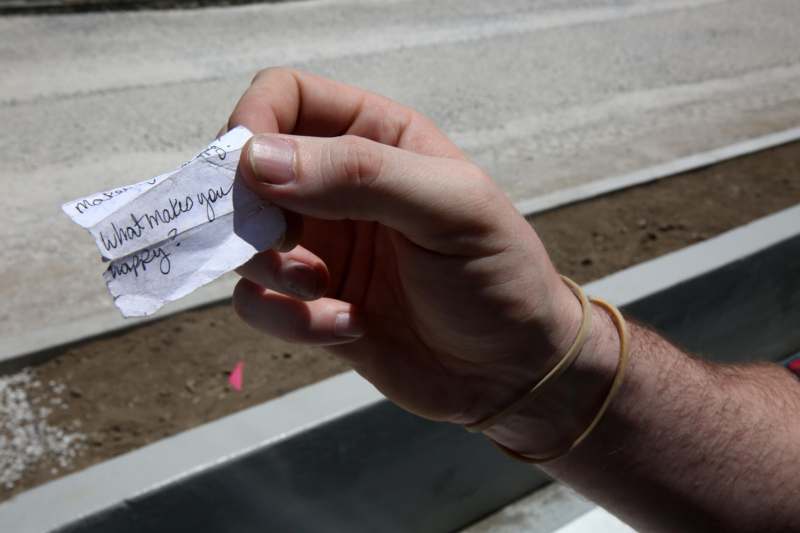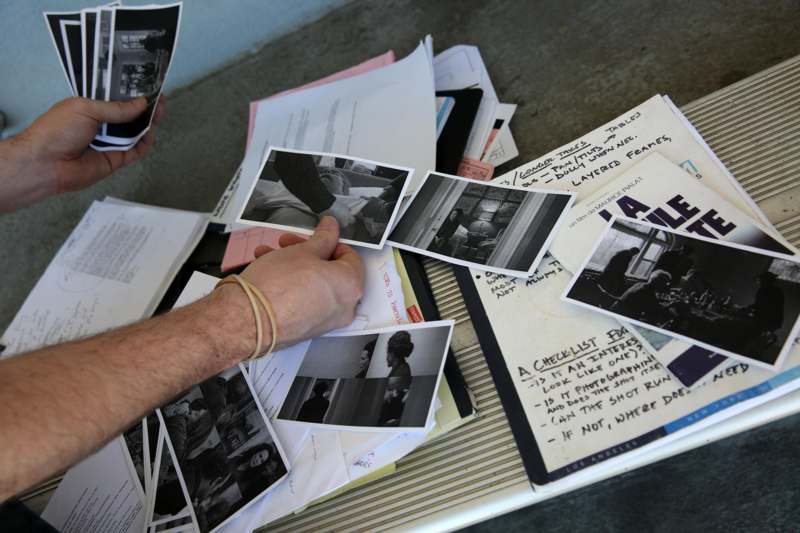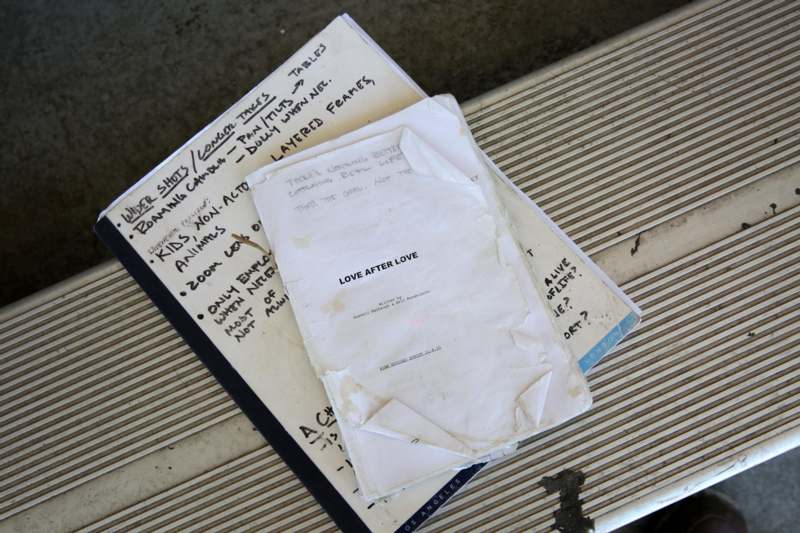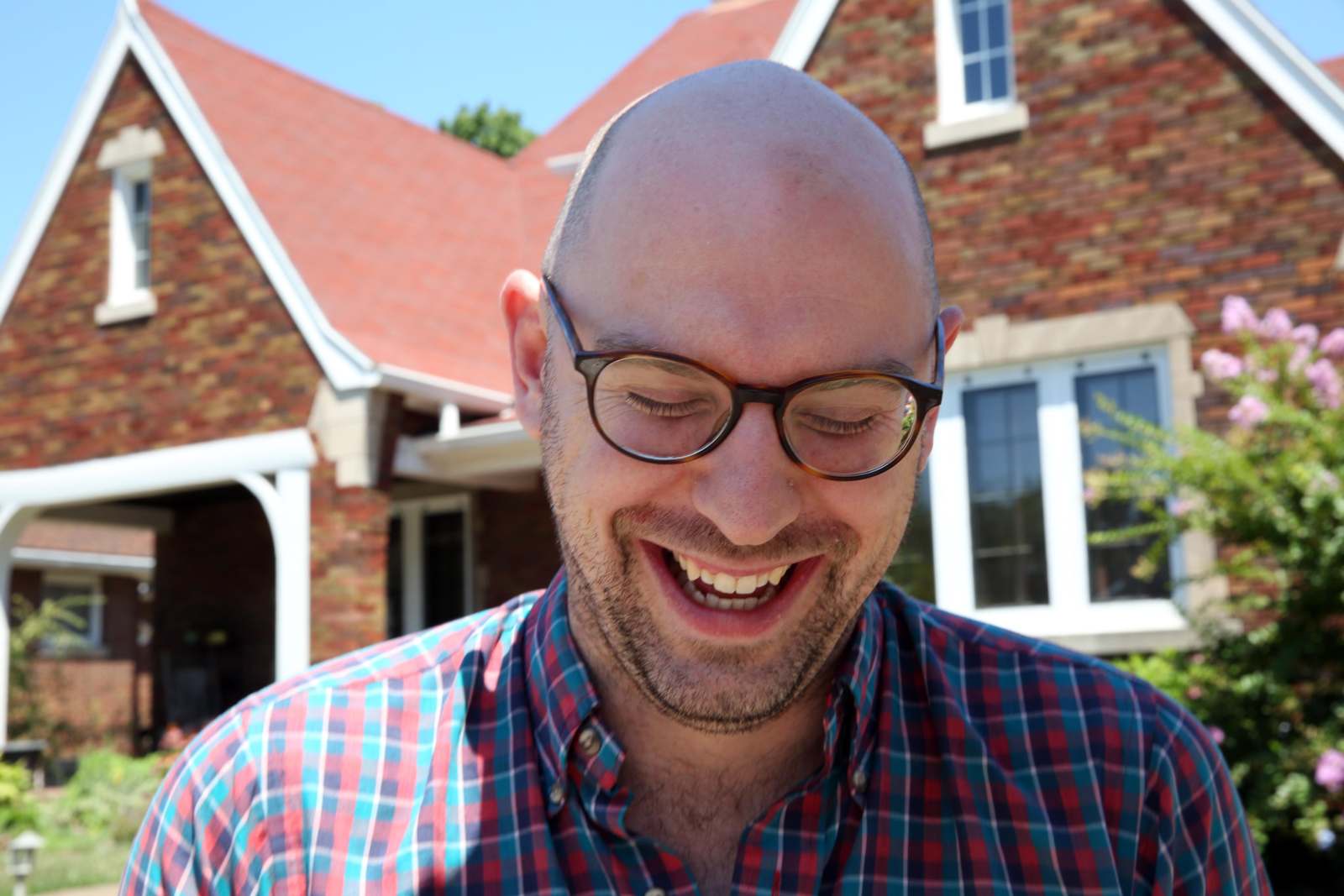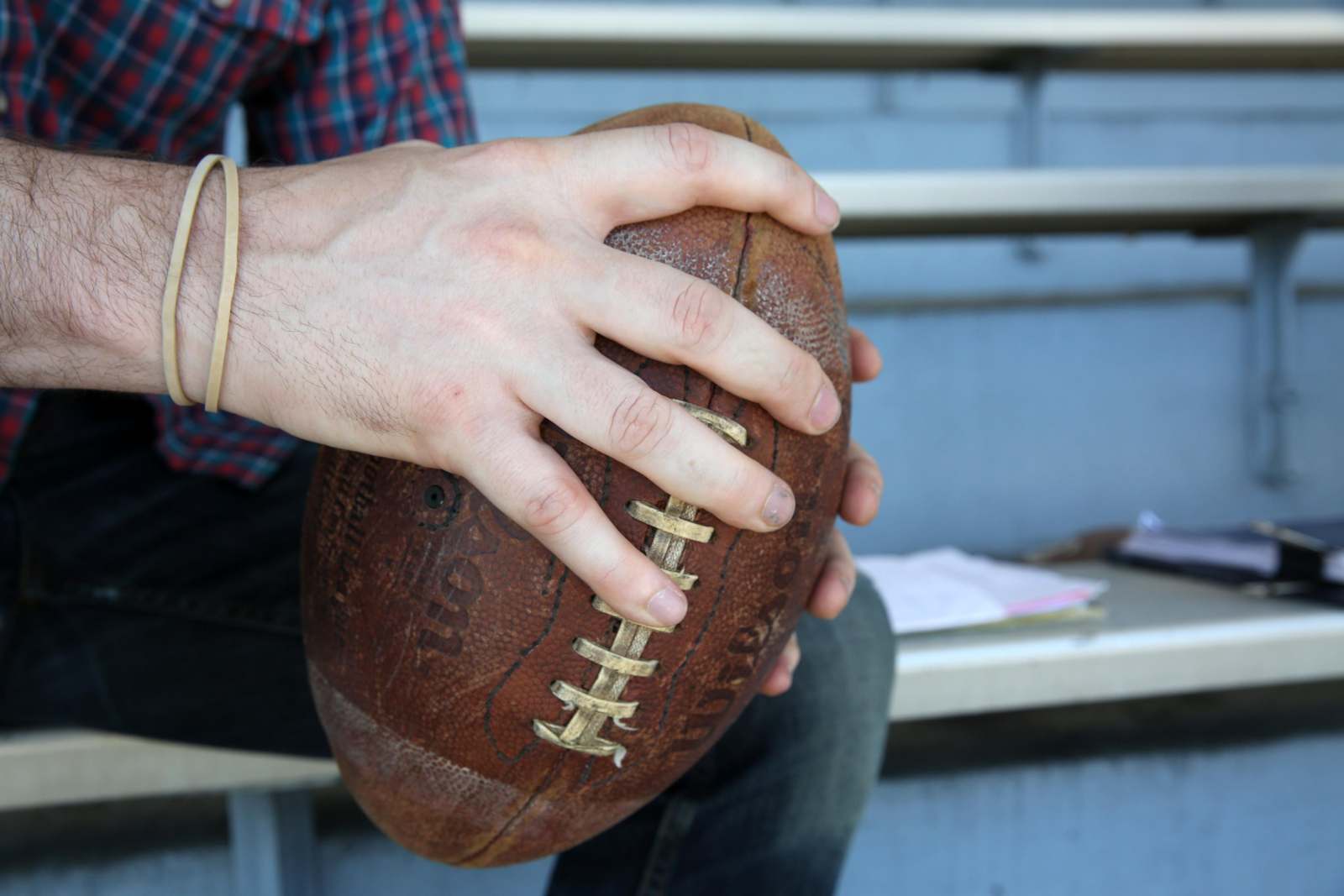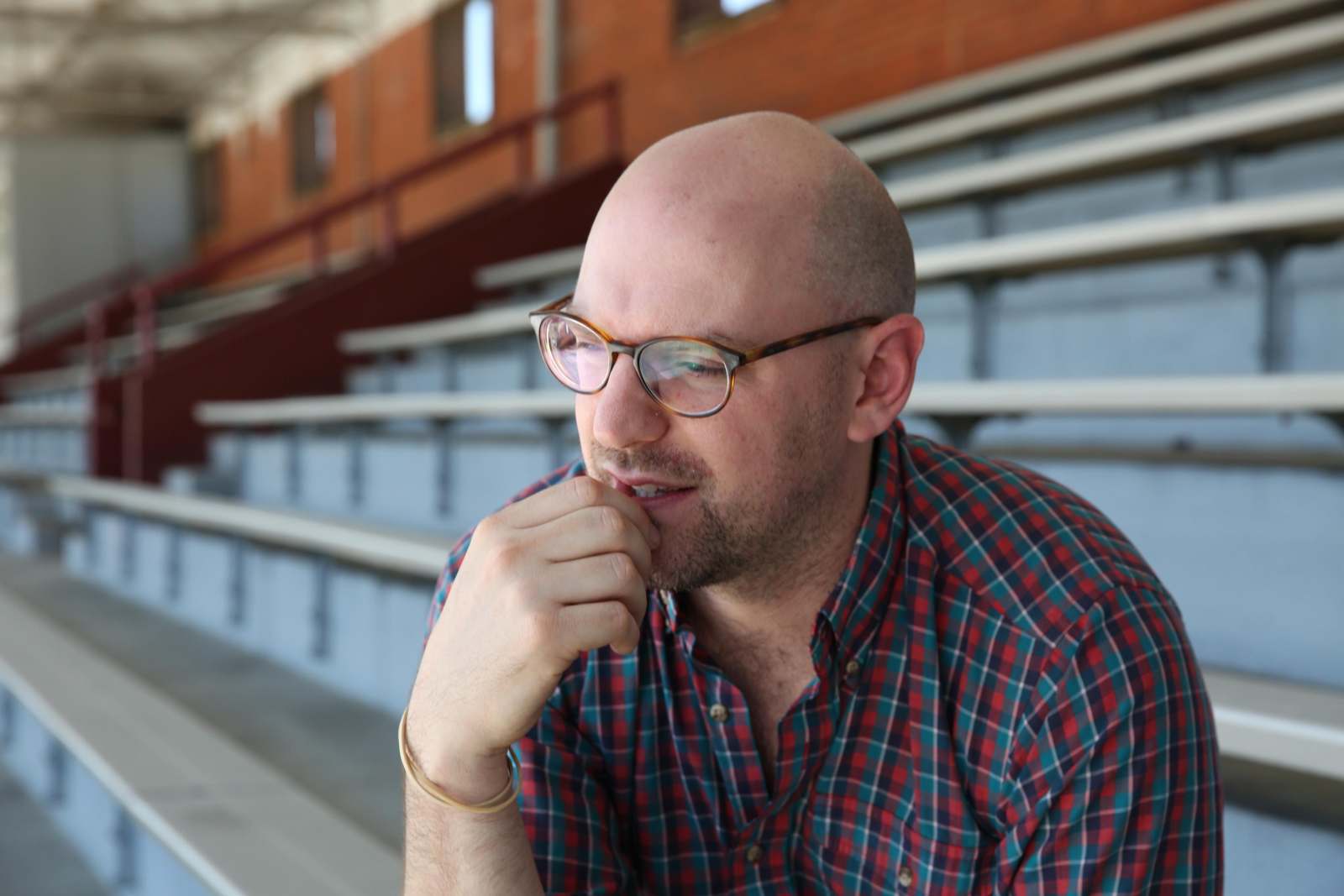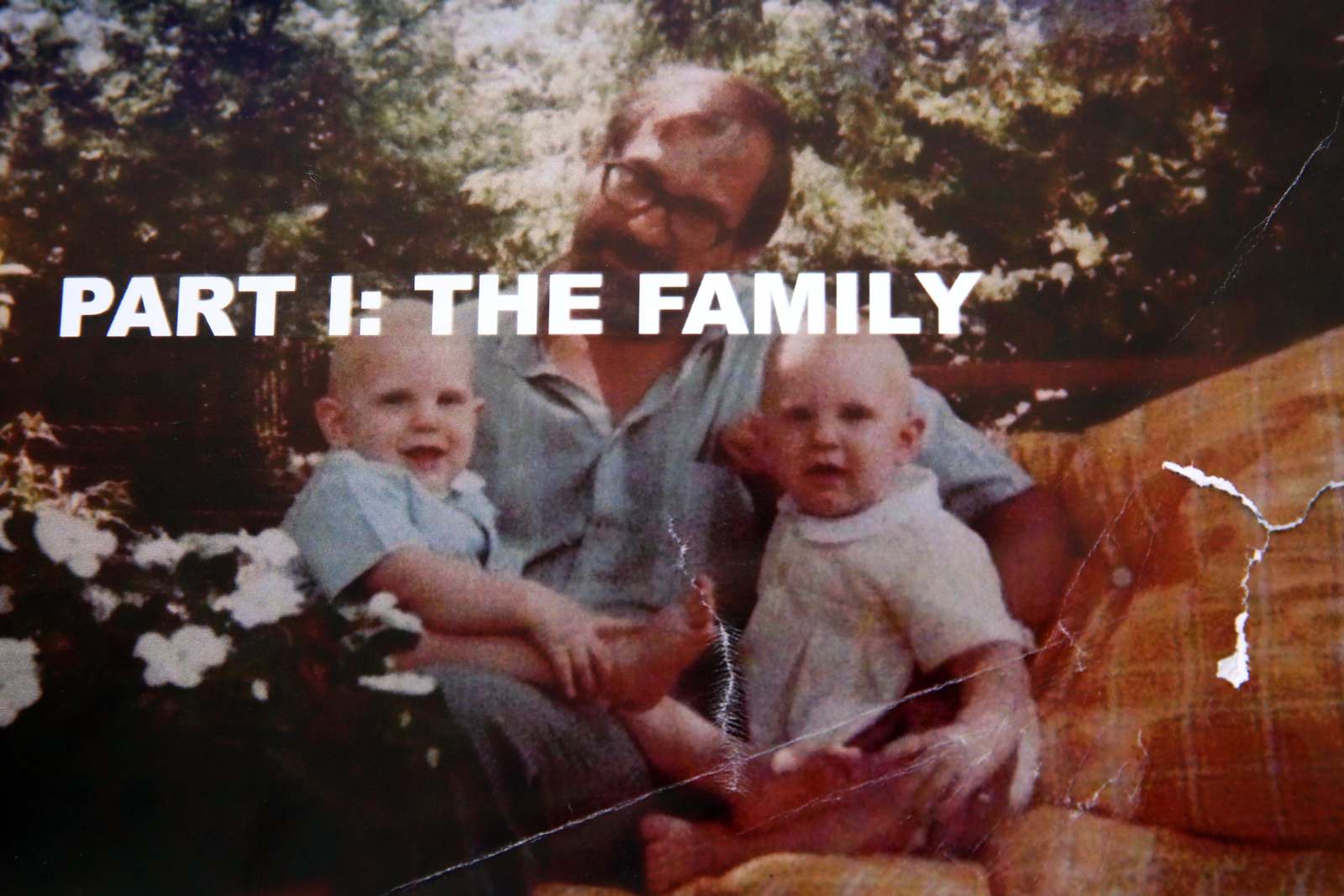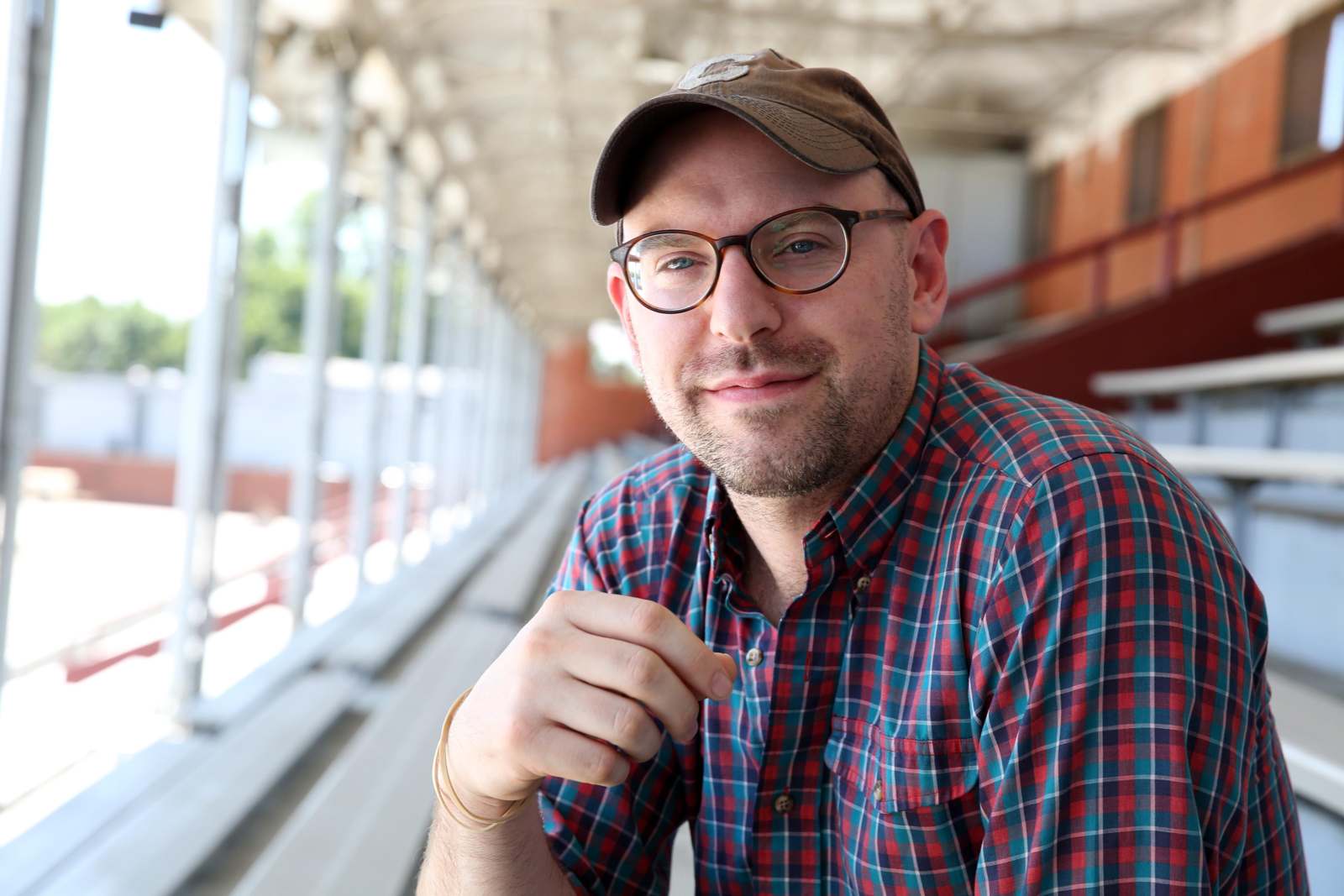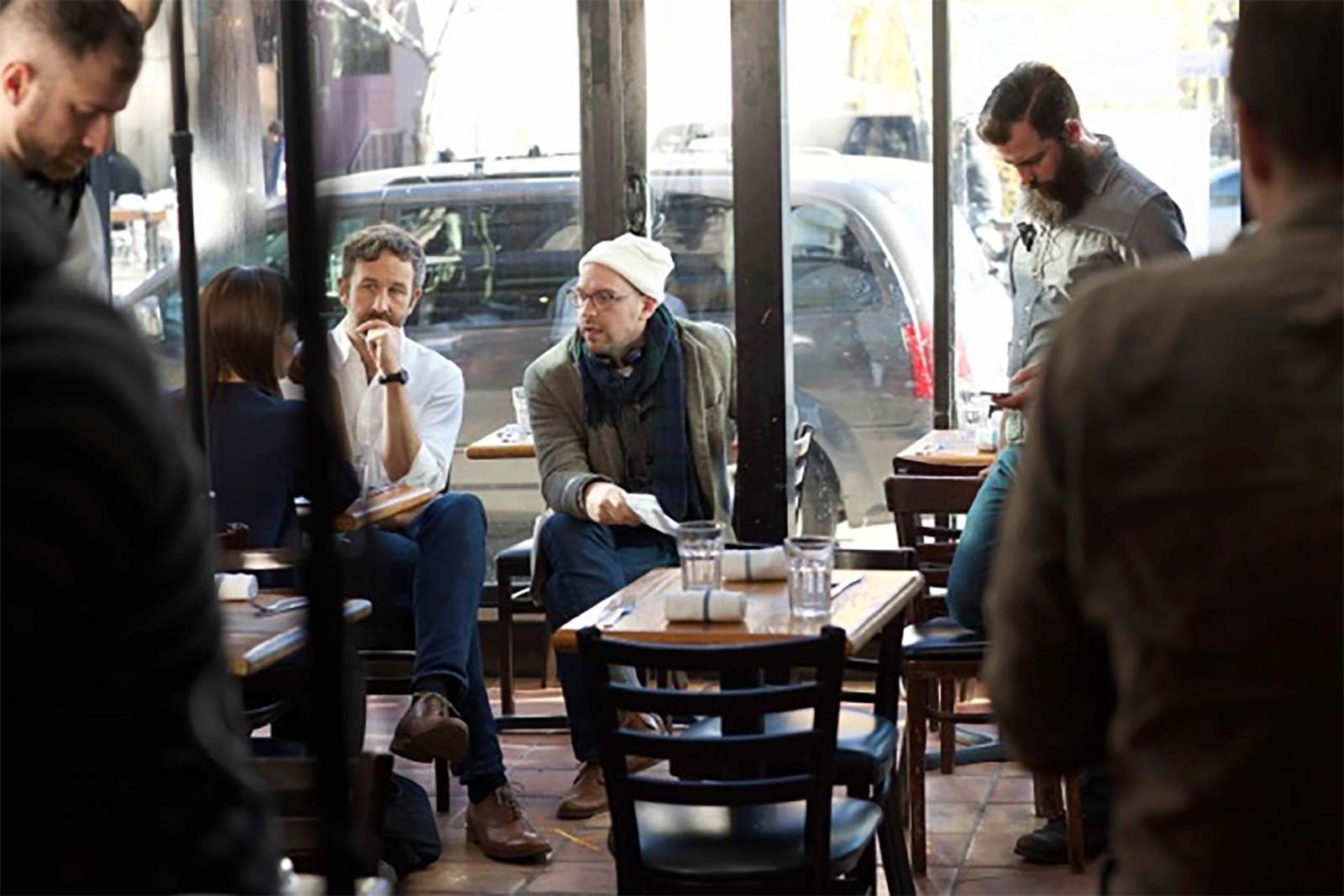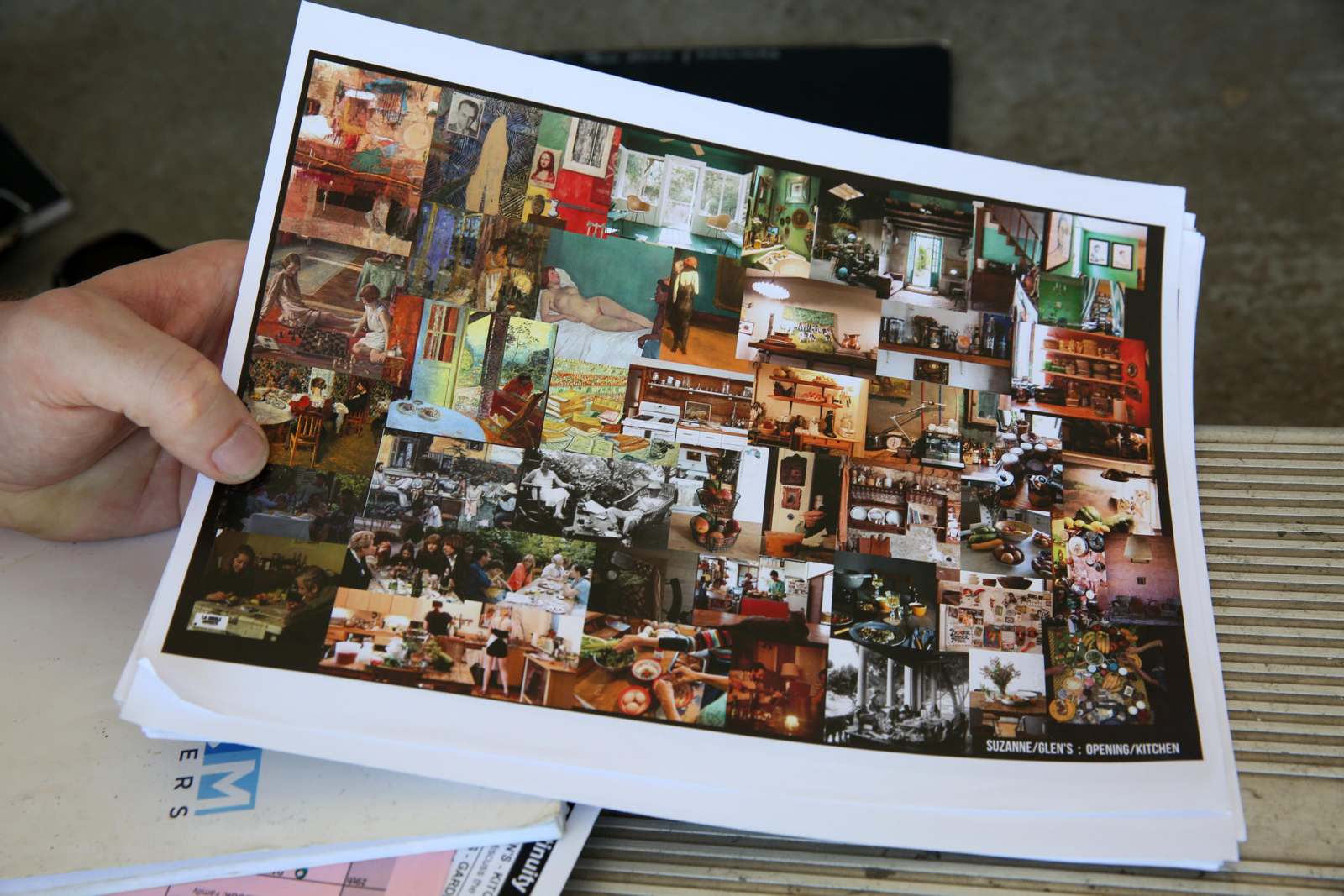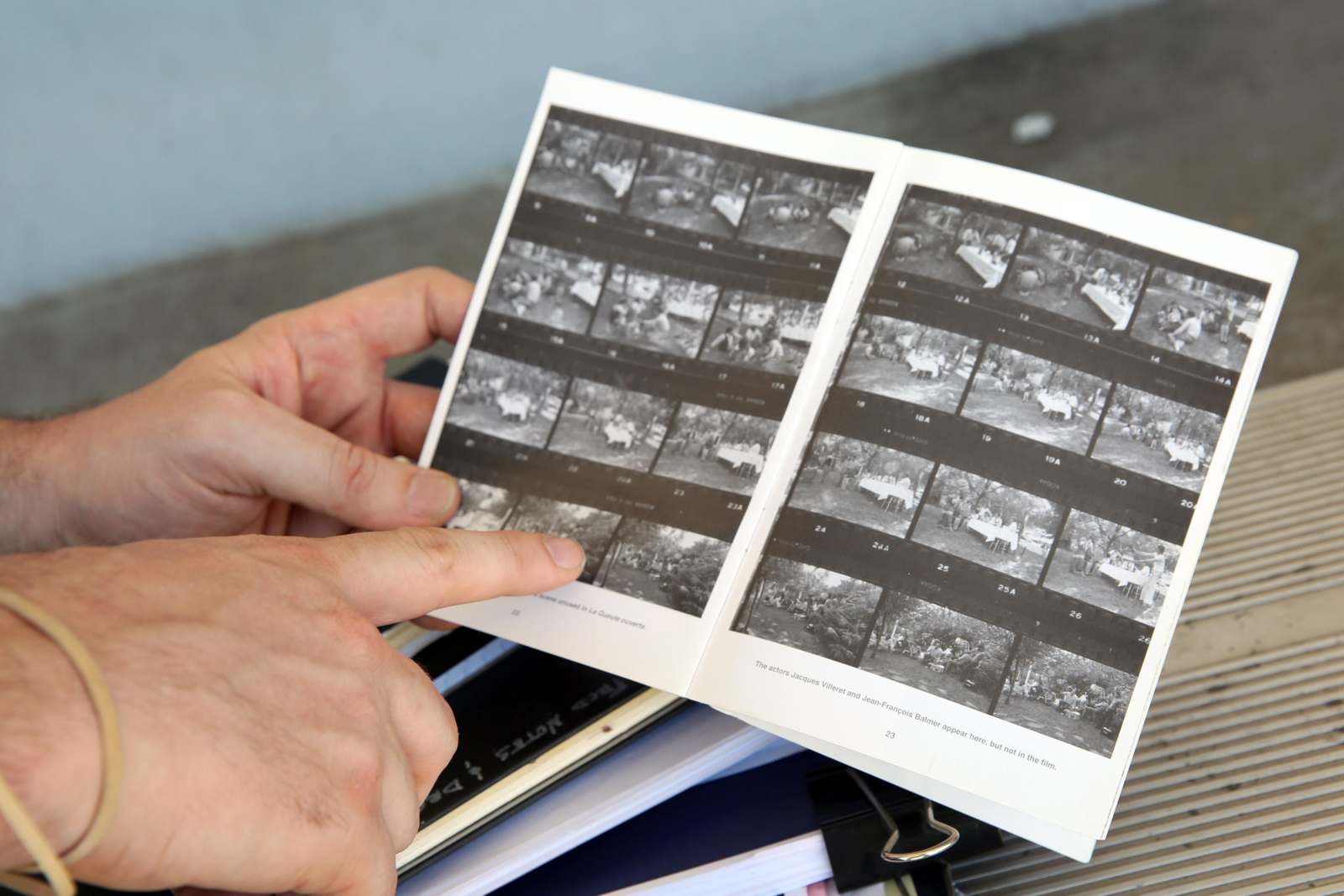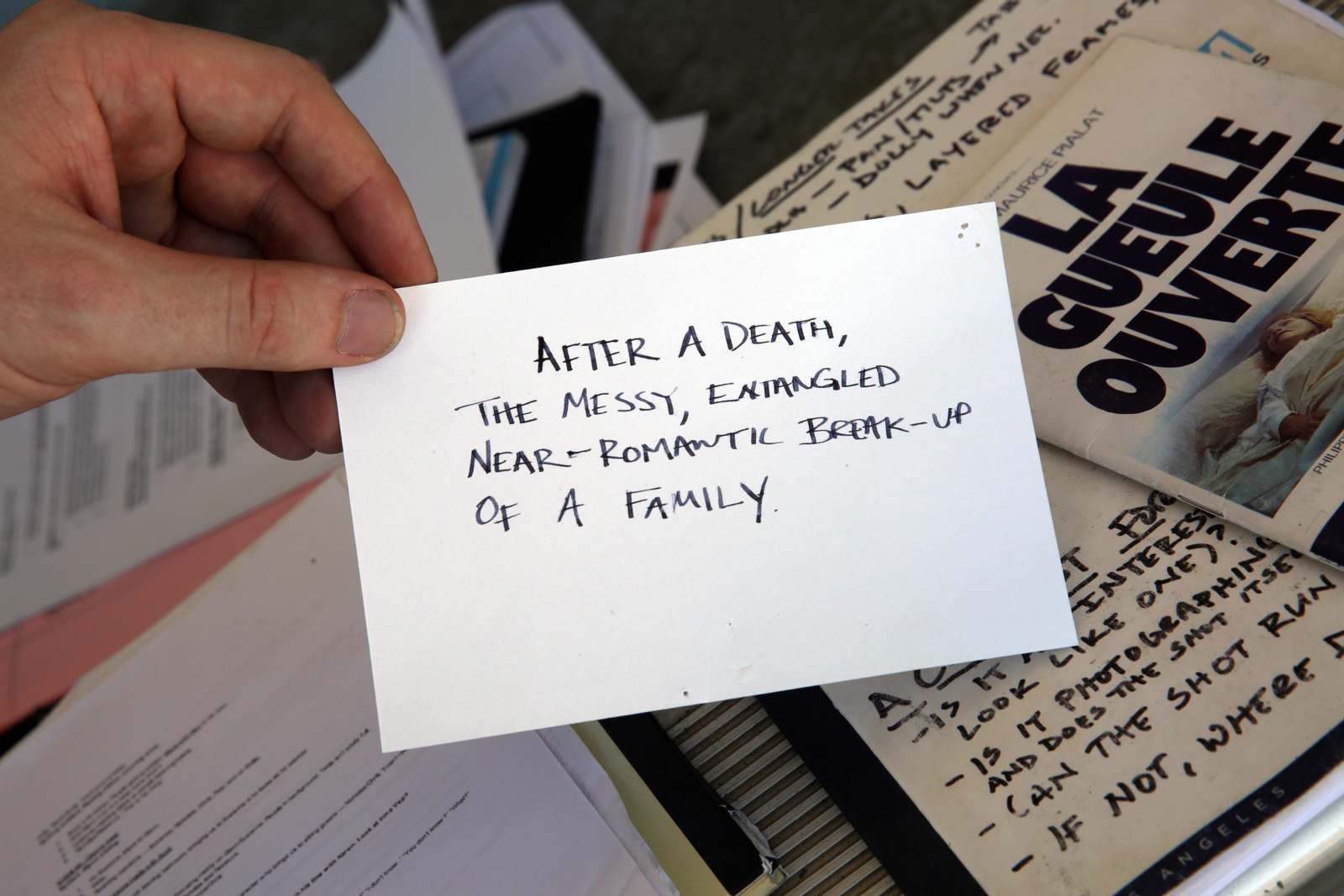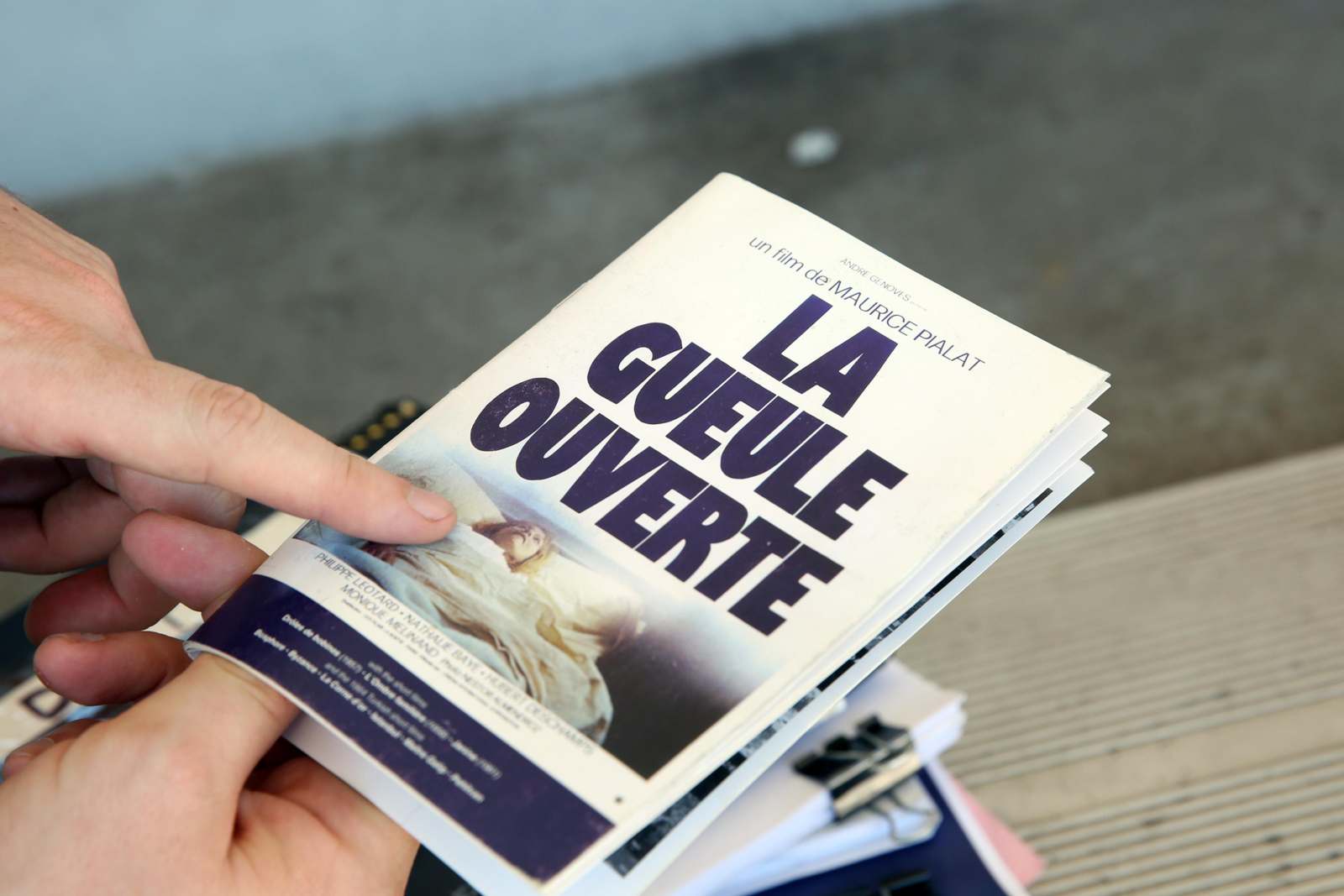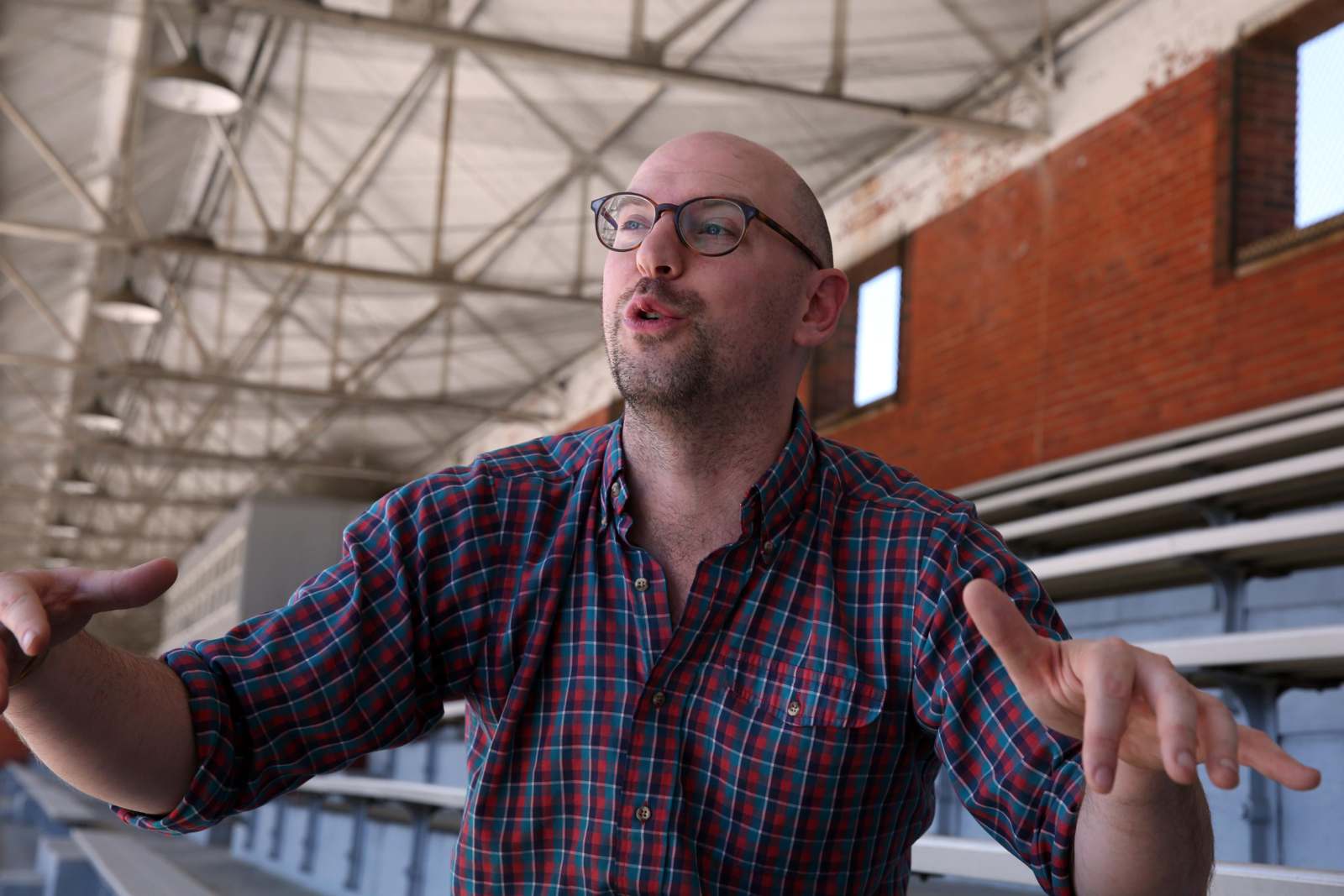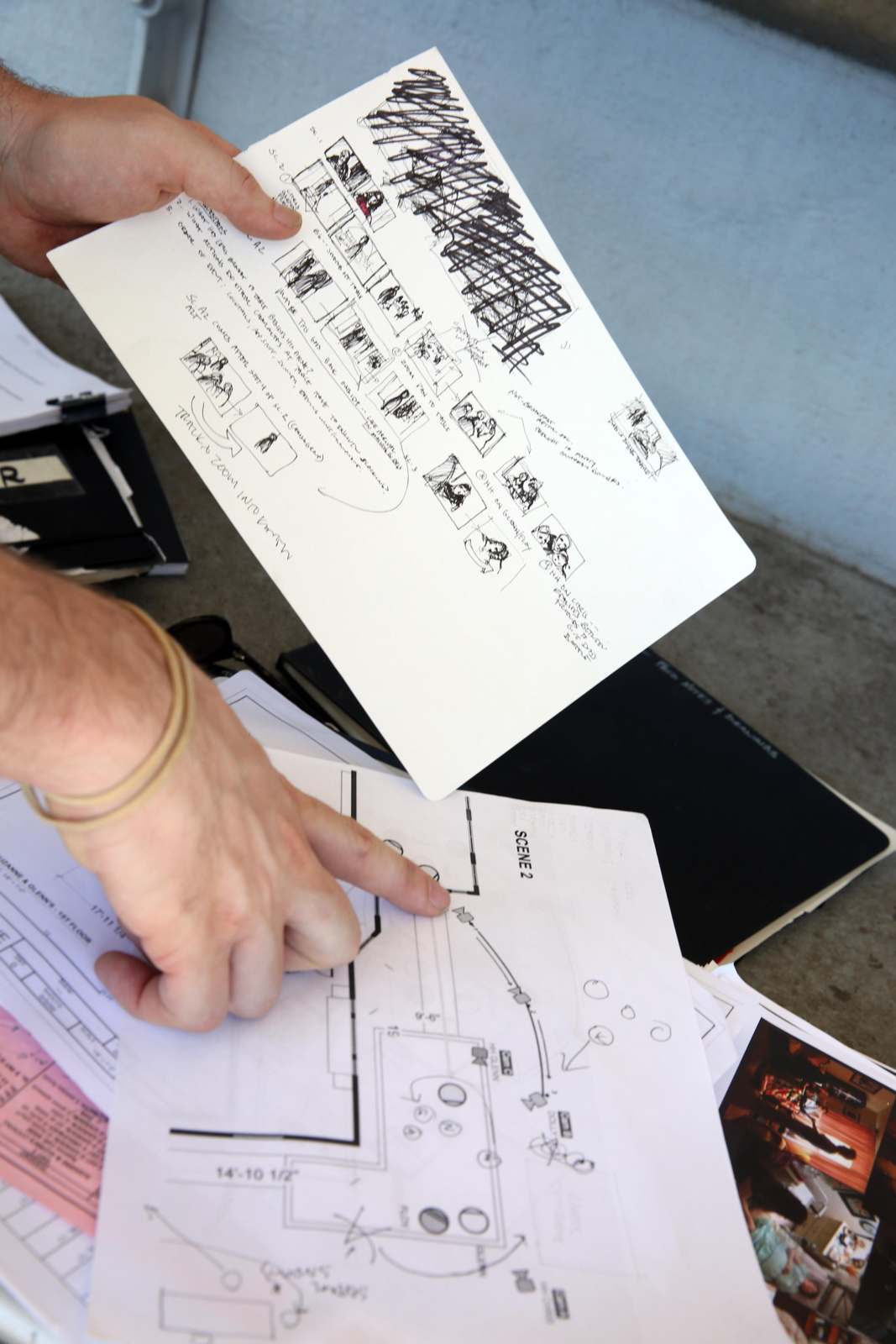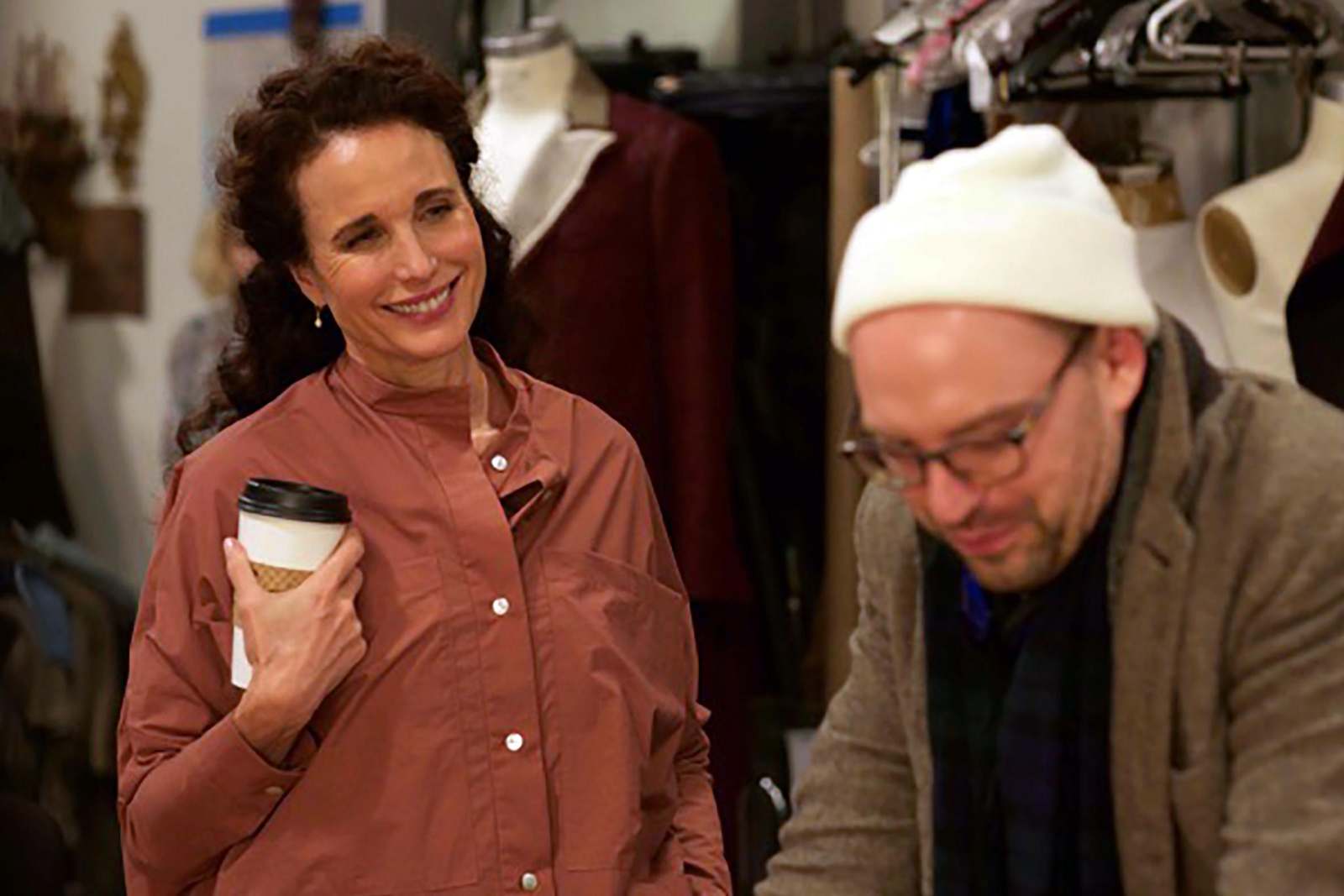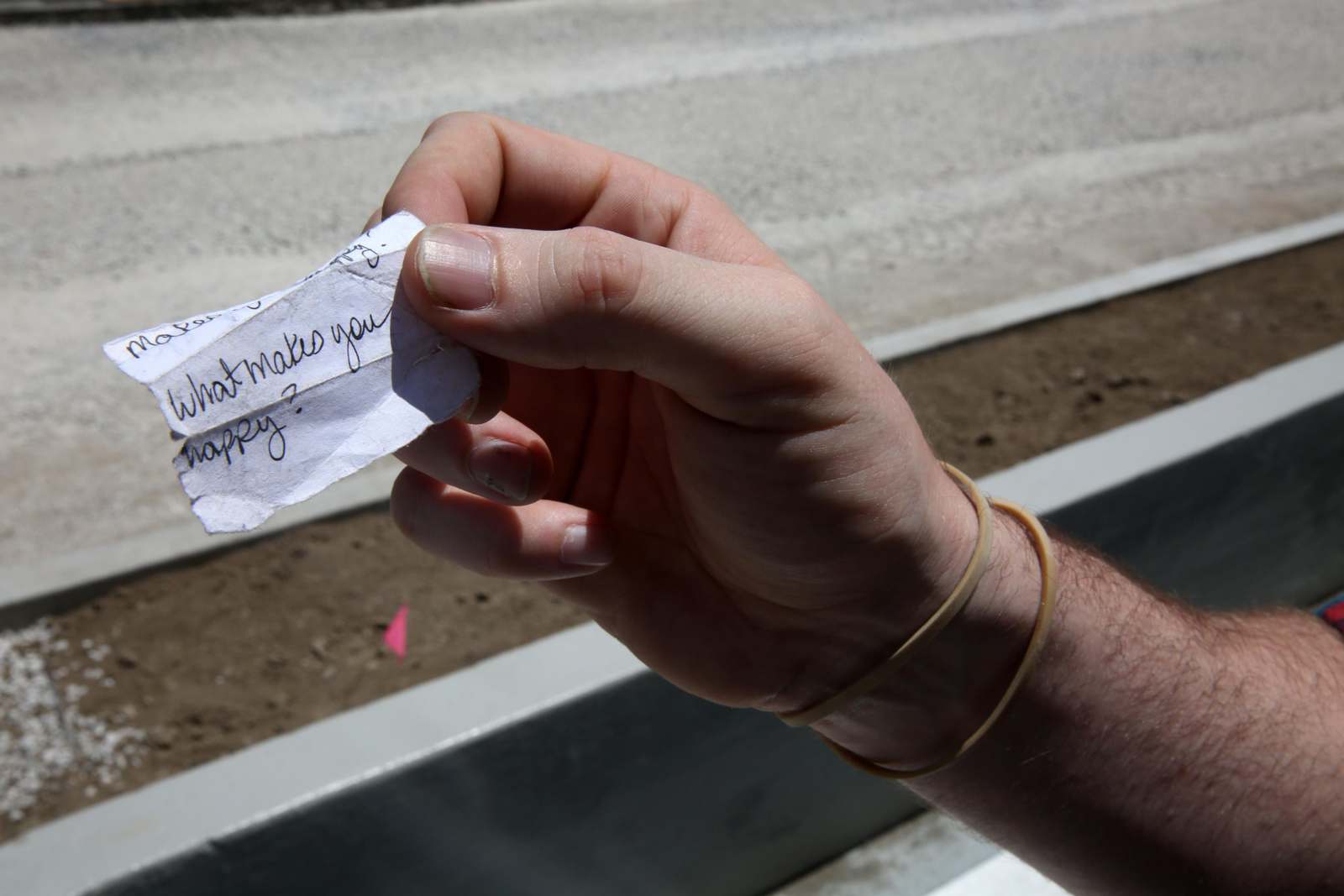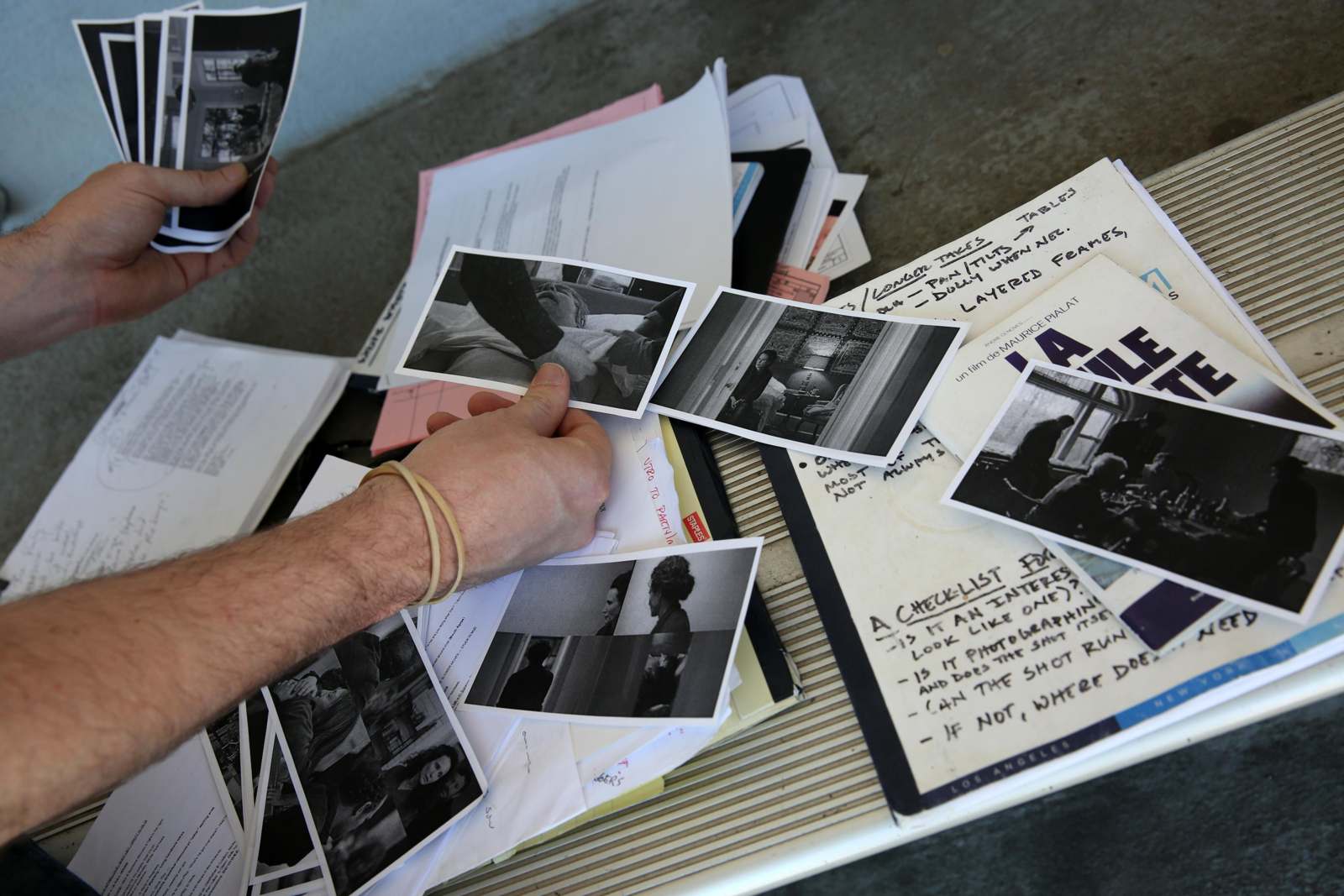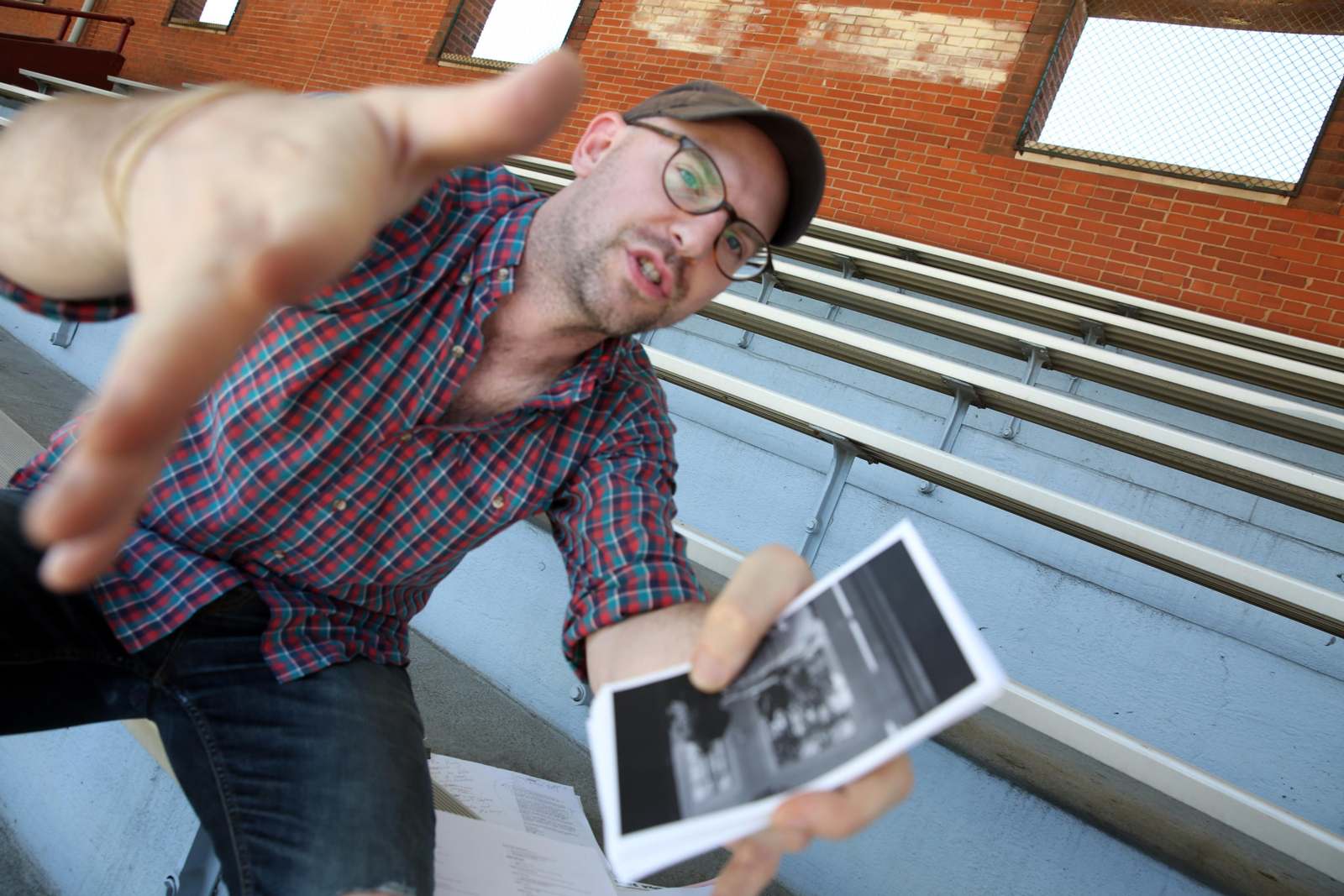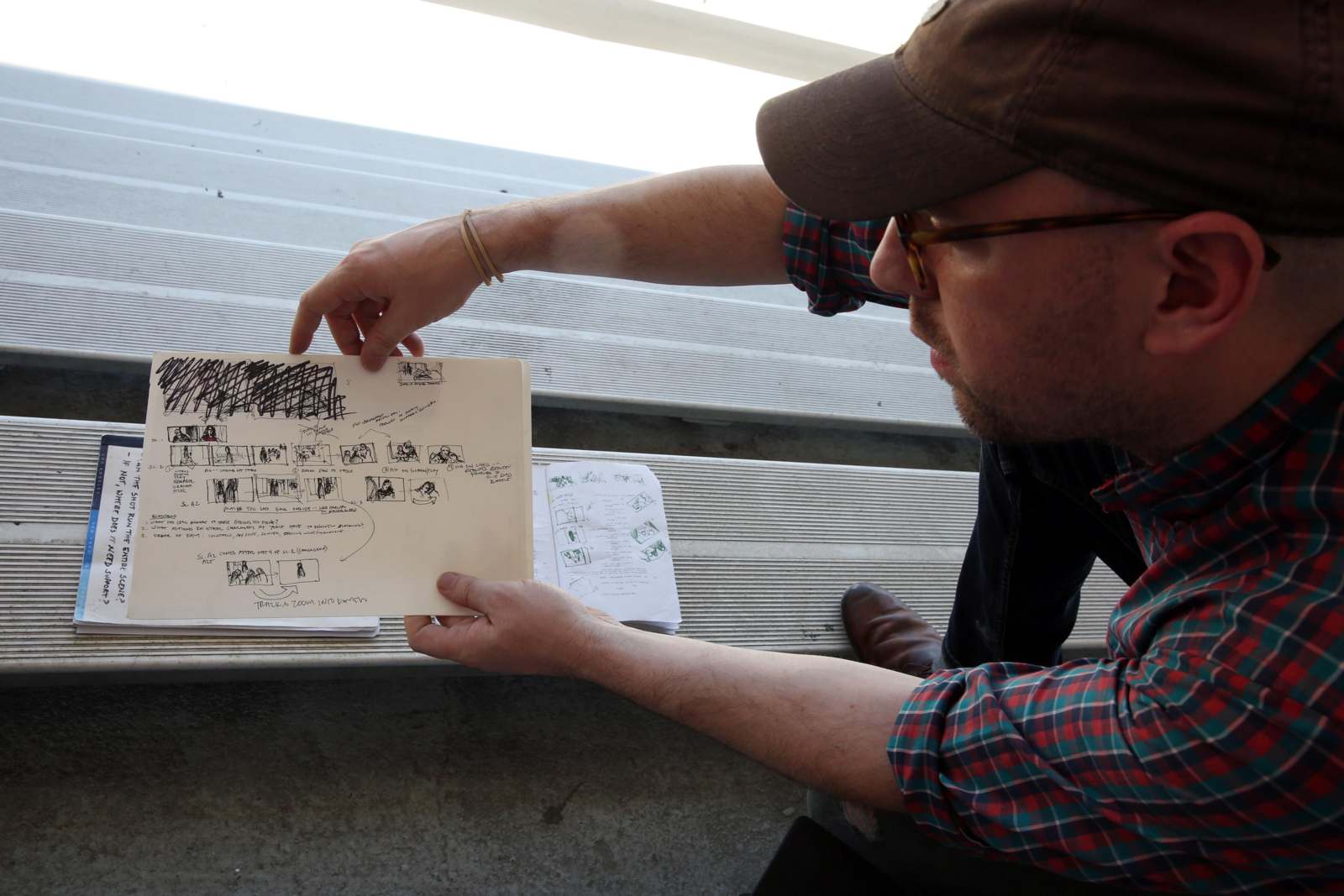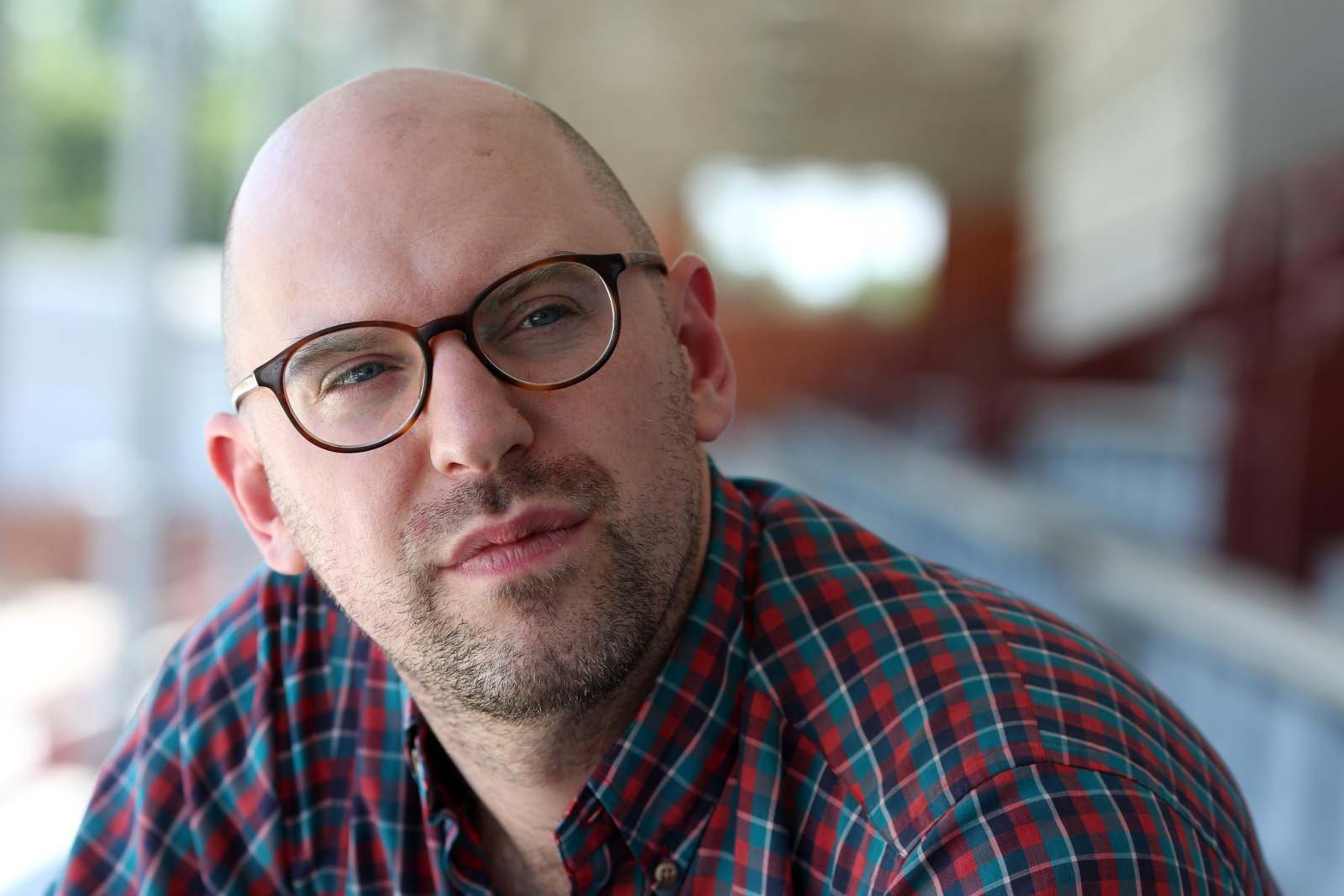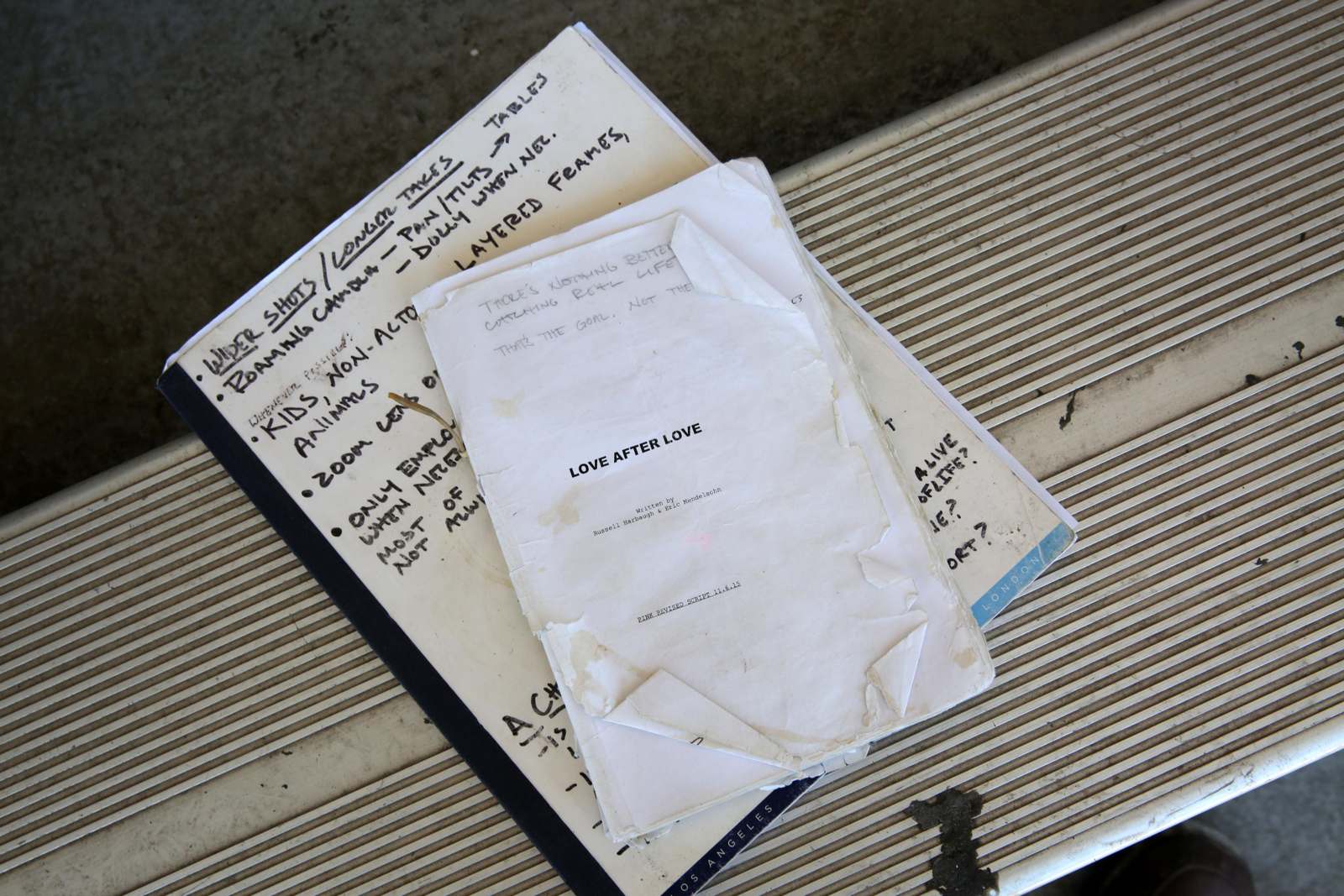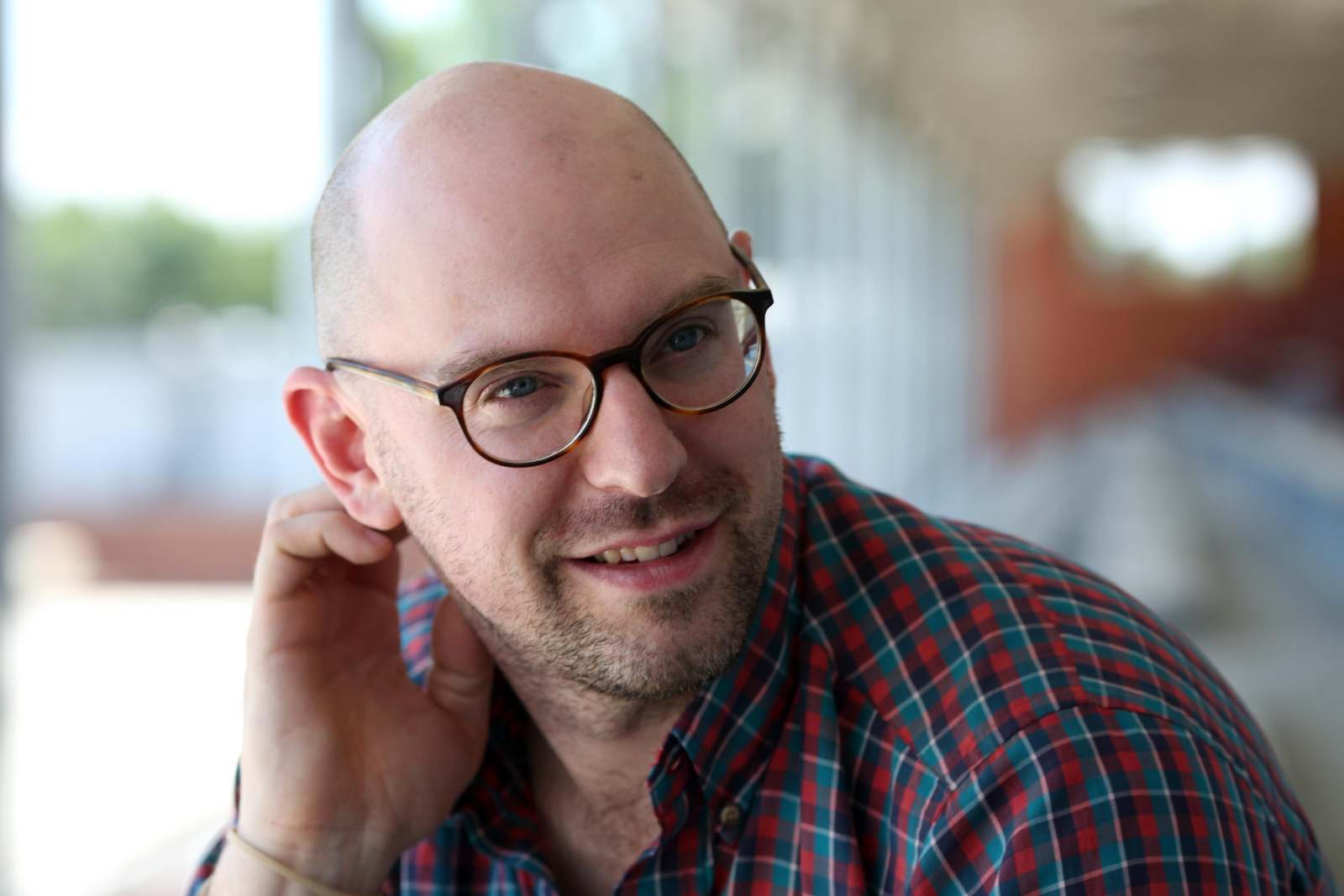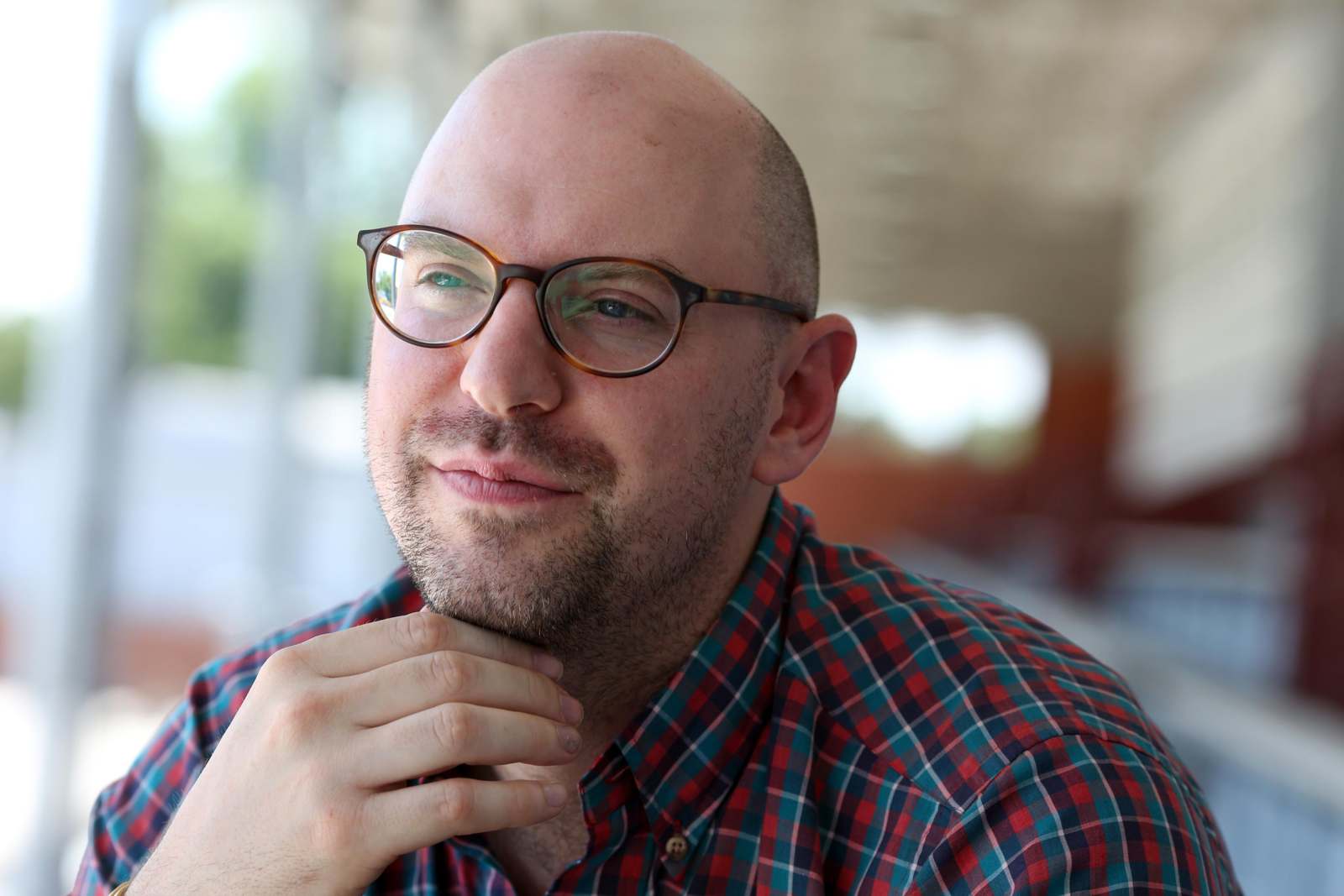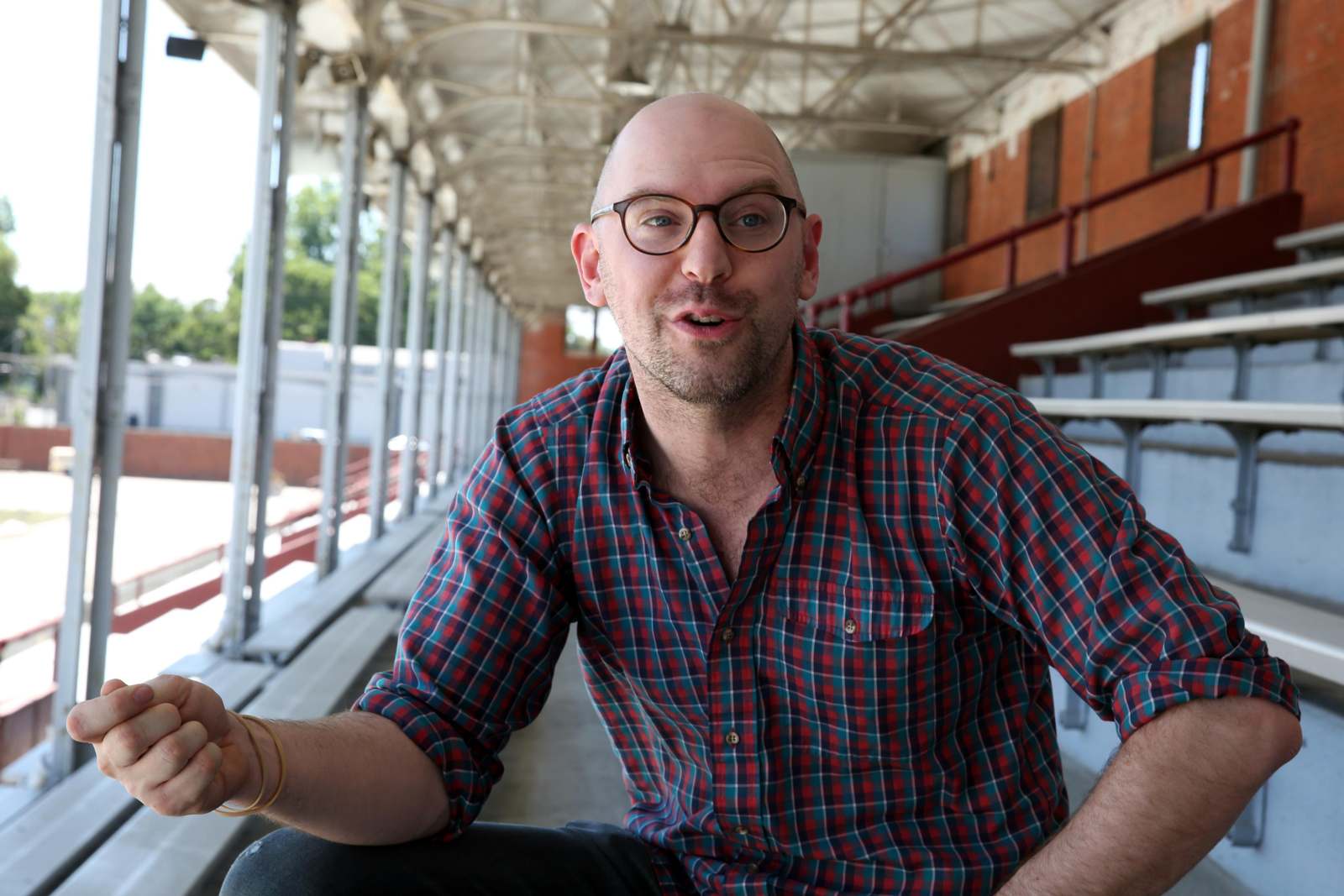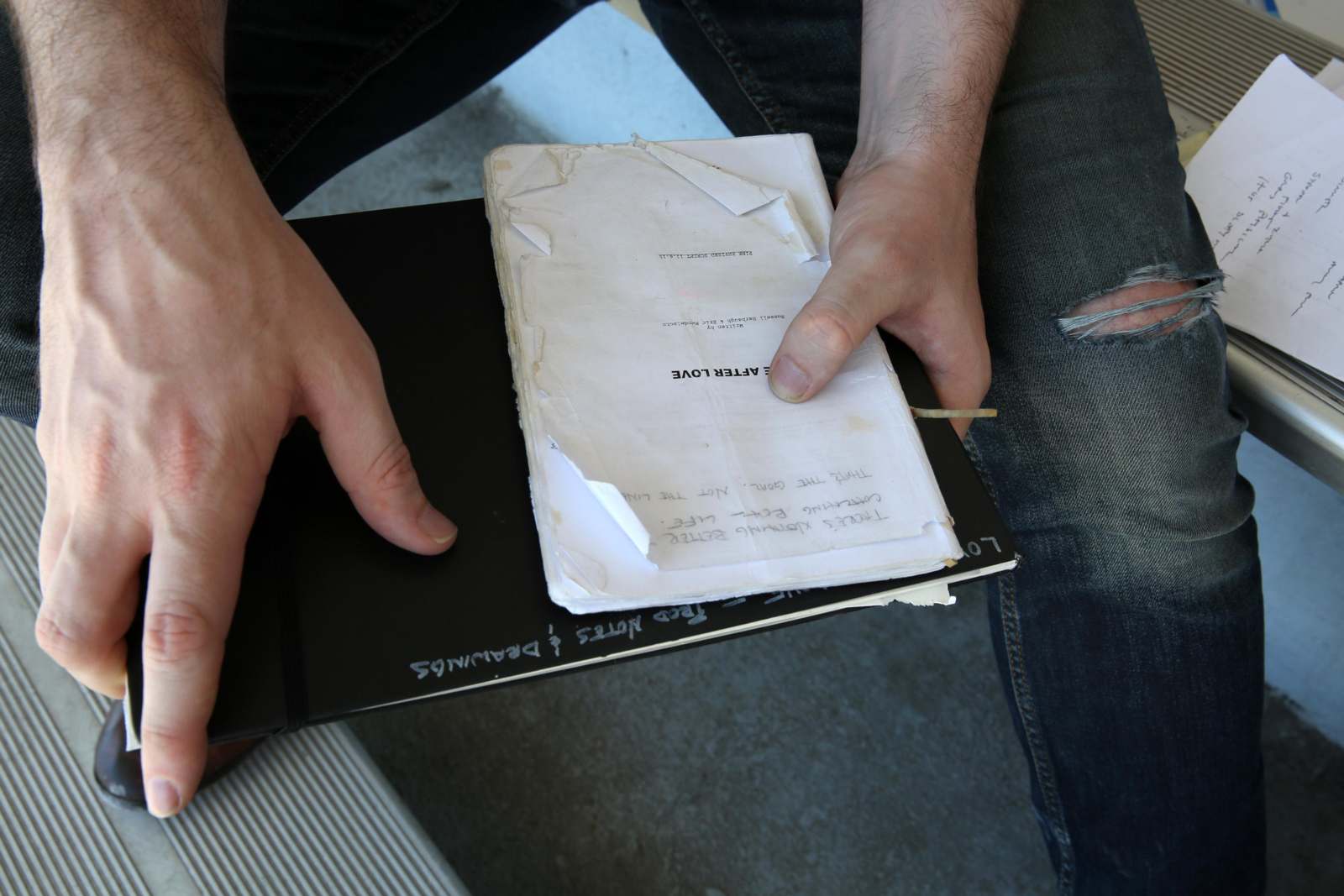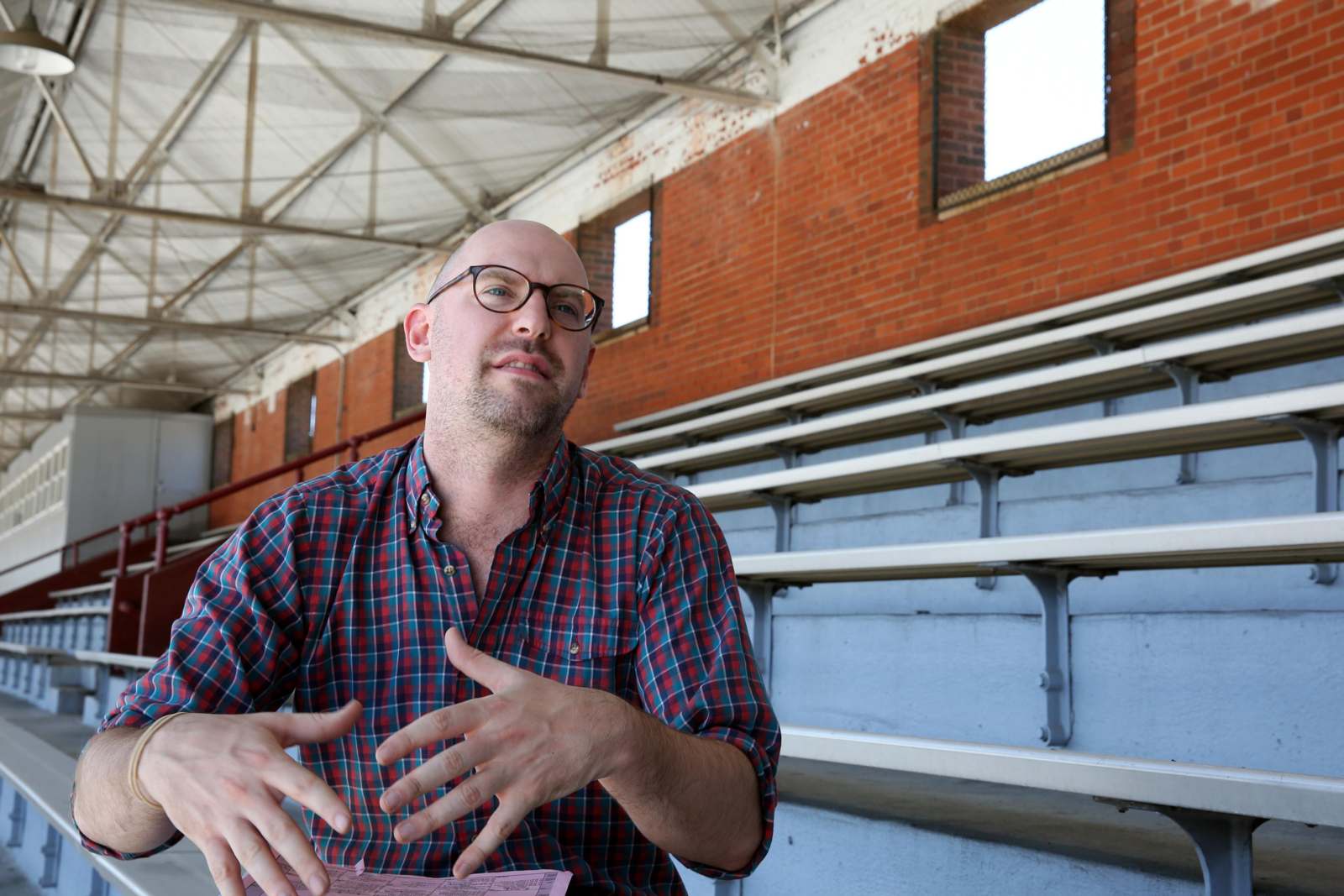Filmmaker Russ Harbaugh '06 on 'Love After Love'
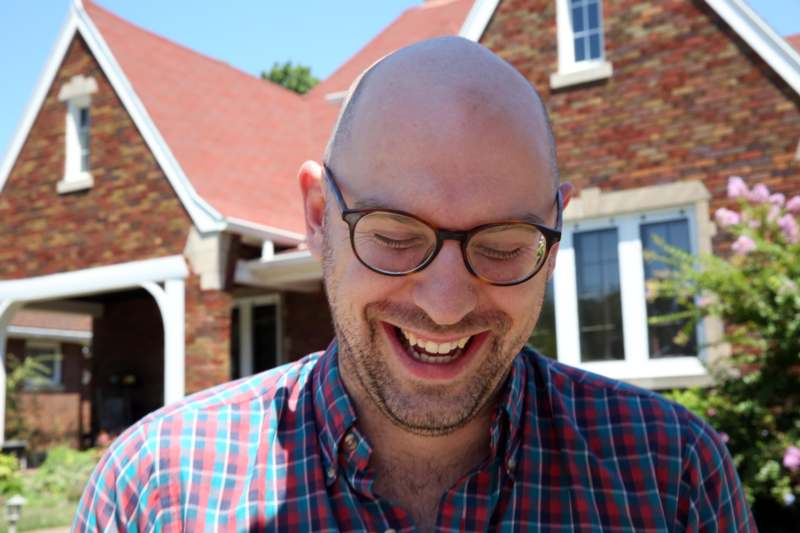
Russ Harbaugh '06 smiles outside of his childhood home in Evansville, IN, which also served as the set for his 2011 thesis film, 'Rolling On The Floor Laughing.' This gallery includes photos and Harbaugh's thoughts from a July conversation that touched on his latest film, 'Love After Love,' his creative journey to becoming a filmmaker, football, and his Wabash experience.
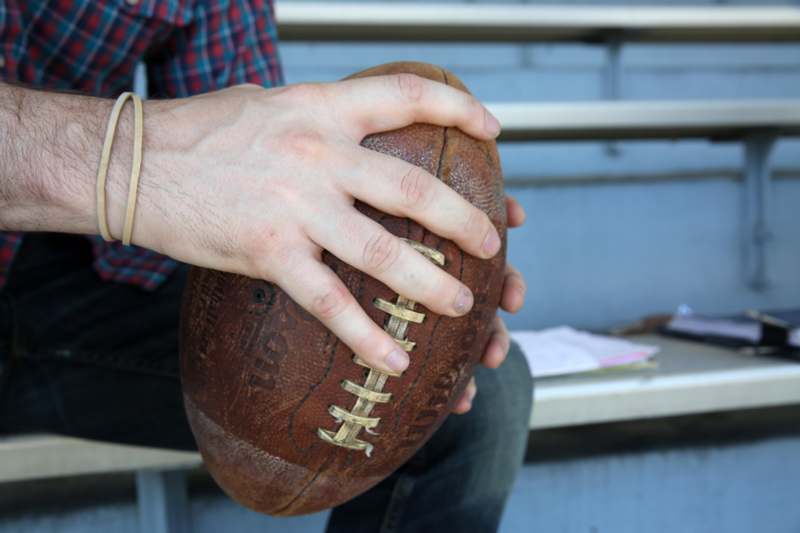
(comparing football to movie making): 'Coaches set the game plan, what the goals are. We’d figure out how we’re going to achieve those goals systematically. You plan that stuff, then you get in the game and it’s chaos, and you have to kind of keep one hand on what you’ve prepared and keep your eyes open and be present for what’s happening. That’s definitely what making a movie is, too.'
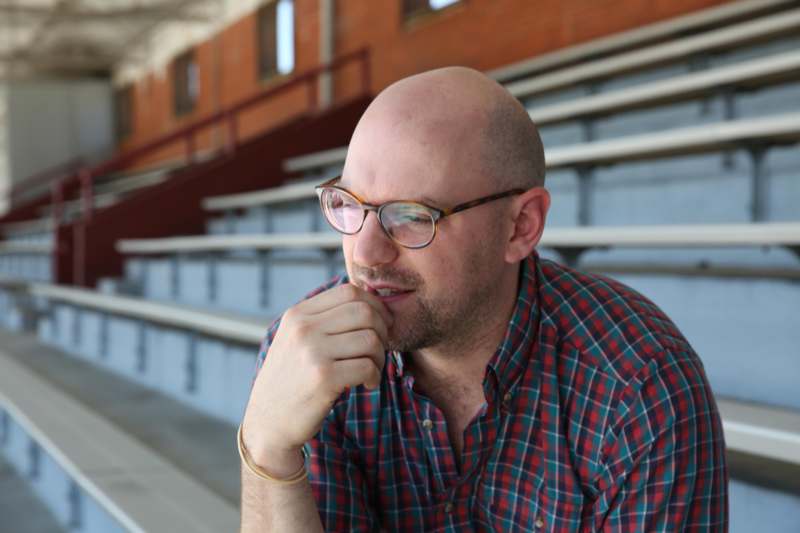
(on art and football): 'I got really lucky in being exposed to artistic stuff as a kid and being around artists growing up, and then finding in sports relationships and experiences that give (the feeling of) being a leader, of being taught to be a leader. A painter doesn’t really have to be that. He doesn’t have to be able to articulate what his goals are and what his ambitions are, and why it’s important. But the director really has to.'
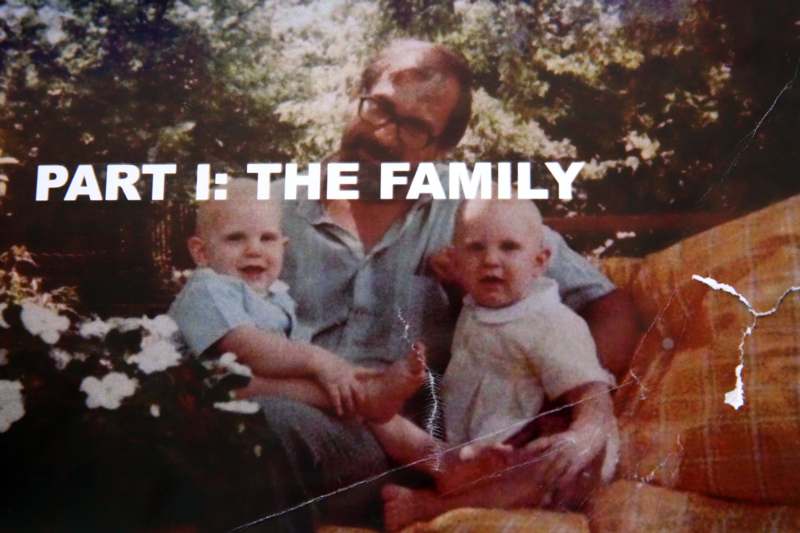
(on his father, Glenn; a director and filmmaker himself, and his impact on Russ' directing after his passing): 'I feel more free to investigate the things that he loved. He was a big Harold Pinter guy. He wrote his dissertation on Pinter. I didn’t know who that was until after he was dead. I just fell in love with him; in part because of my dad, but also because I responded to the same things my dad did in those plays – the surface of things hitting up against the subterranean, emotional boil of things. I’m not sure I would have felt as allowed to pursue that stuff if he were still around.' This image features Glenn with Russ (right) and twin brother, Barry, and was taken from Harbaugh's 'Love After Love' image bible.
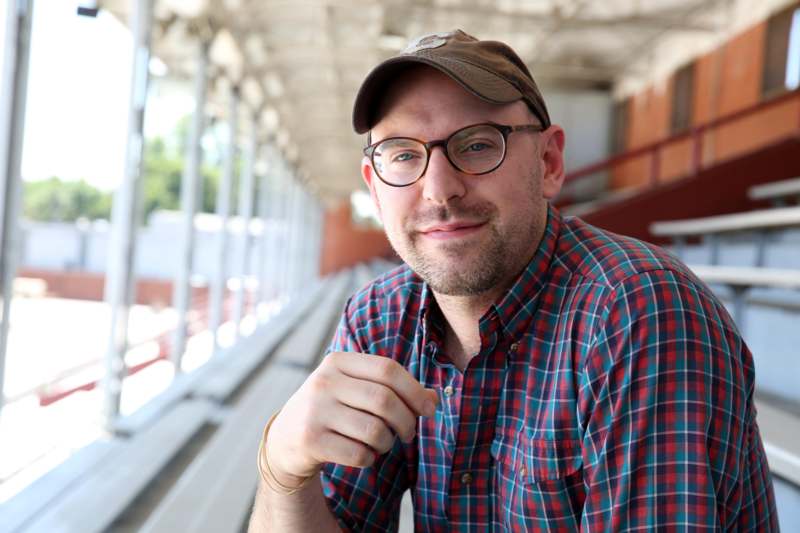
(more on Glenn): 'He was around when I made Beside Myself at Wabash. When I made those two documentaries, I remember he was so tickled. He was like, ‘how did this happen?’ I got into grad school at Columbia right before he kind of really declined. He would tell people (about Columbia)…I could tell that he was very proud. I don’t think he had any idea what was going to come of that, and I didn’t have any idea, either.'
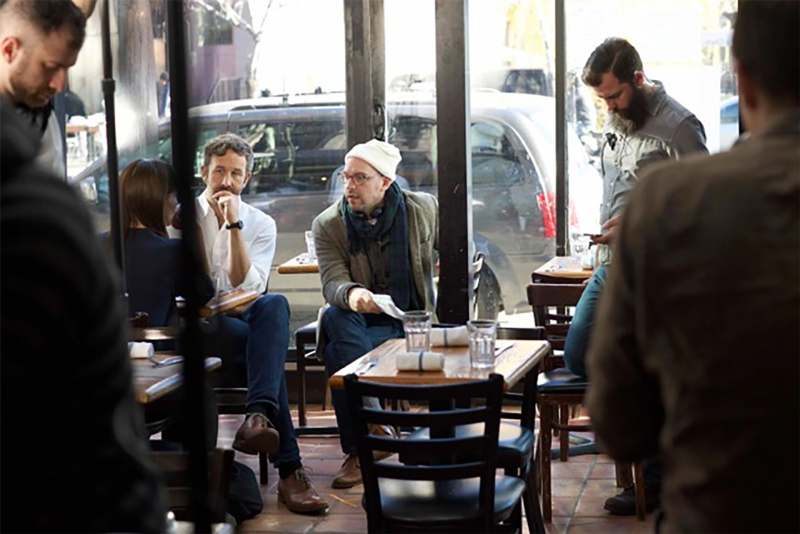
(on actor Chris O’Dowd [left, in white shirt] on set with Harbaugh [white hat]): 'Audiences are going to be split on the movie by their reaction to his character. But there’s something fun about that to me. The movie isn’t about him. What he’s dealing with, he’s so angry. He’s very different from his mom’s story and his brother’s story and I liked that. It was a really hard job for him, and to his credit, he was great. I kept telling him, ‘It’s not like the character doesn’t have redeeming qualities, it’s just that I don’t want to see them in the movie, you know?’ The purpose of his character in the movie is to get at that feeling of anger and messy.'
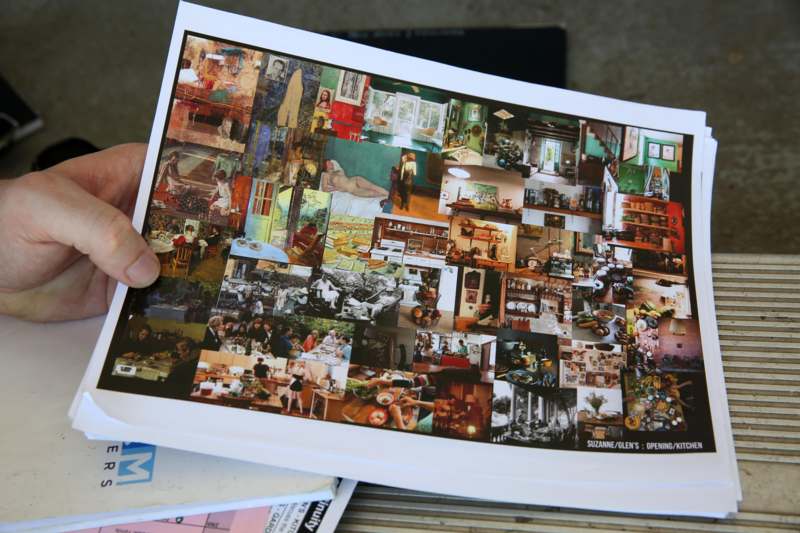
(on his artistic desires and discovering film): 'There are different degrees of wanting to be a filmmaker. What I found at Wabash, was something that makes me happy, something I can get lost in. While it was hard to make those docs (Thy Loyal Sons and Beside Myself), it was easy to fall into. It just matched up well with whatever kind of artistic desire I had. I was satisfied in that way.'
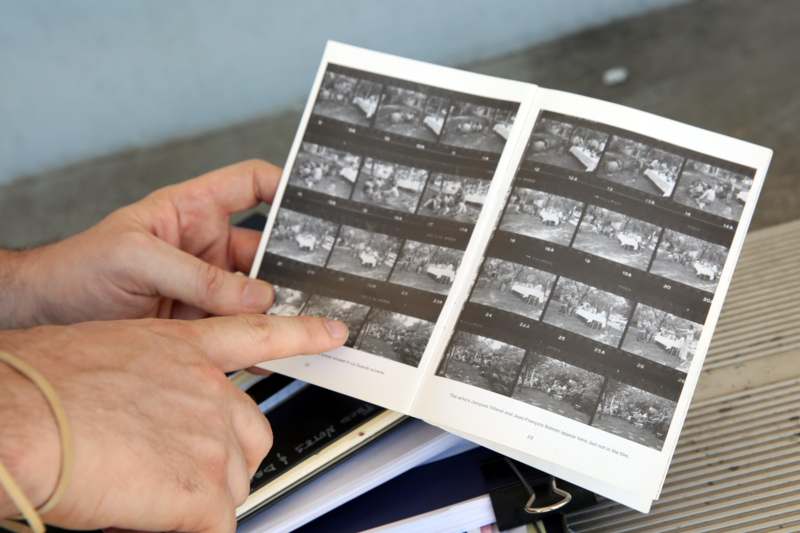
(on pursuing a career in film): 'Doing that was a way of ensuring that my life would be about film in some way. Coming out Columbia, I threw everything I had at my thesis film, Rolling On The Floor Laughing (2011). It did well. Those two things together, that collection of experiences I’d had up to that point, somehow spit out a person who’s able to make movies that are interesting.'
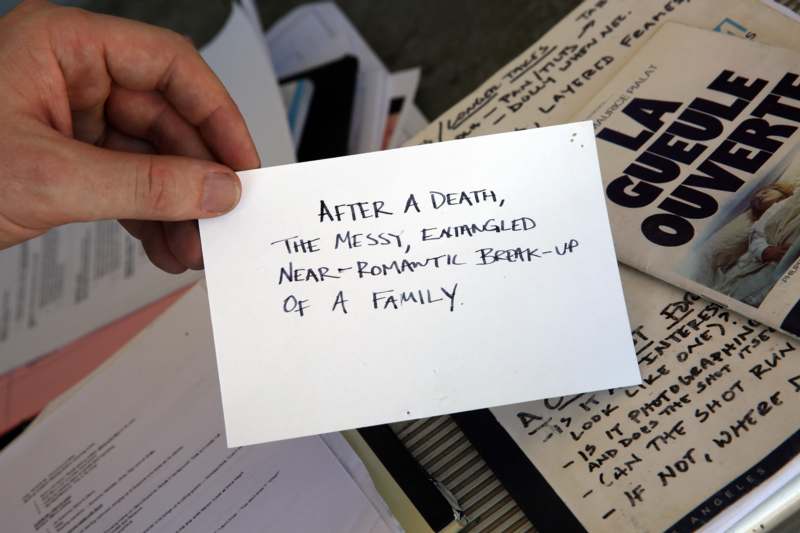
(when he first felt like a filmmaker, during the filming of ROTFL): 'The scene stopped at a point where it shouldn’t stop, and the shot wasn’t good. I stayed out there and re-wrote the scene. Christine, my director of photography, stayed up there and we redesigned the shot. It was a big shot that moved down this table as this small talk was happening, and kind of right up into the face of this son, who says, 'No, you should ask me.' It was so good, you could feel it. In one take, and everyone knew that was really good. I remember having this feeling of just total magic It was such a joy. It was the last day of the shoot, and I remember feeling, ‘Oh, I think I can do this, actually. I’m not crazy.' It was the first time that it didn’t feel like pretending. I came up with an idea that actually worked. That shot became very important to me.'
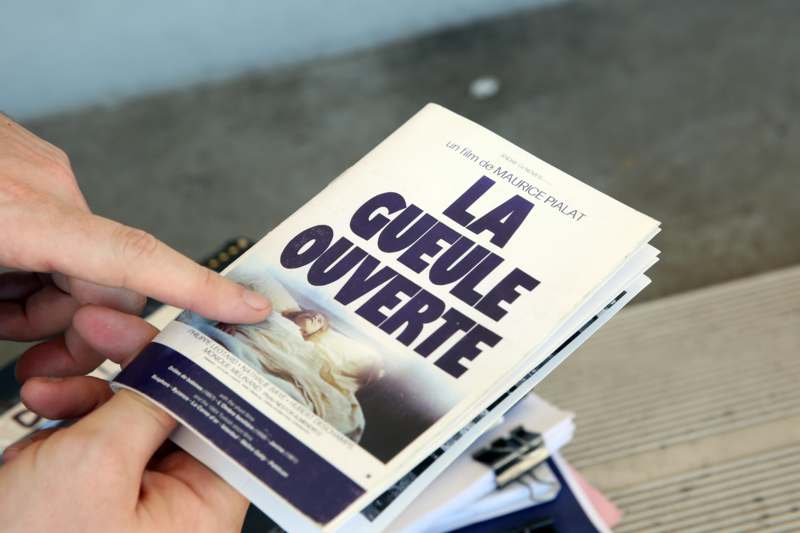
Maurice Pialat's La Gueule Ouverte (The Mouth Agape) is an influential film for Harbaugh. 'I really wanted to make a movie like that. Maurice Pialat’s movies had this jagged-edge feeling. It felt like life to me; one thing slammed against another slammed against another. I wanted Love After Love to have that feeling of a carousel that breaks off.'
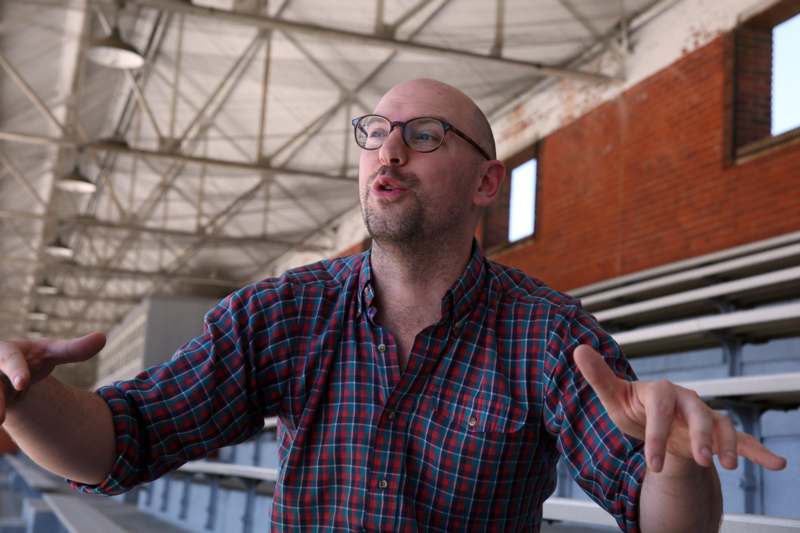
(how he finds truth in small gestures): 'A lot of those moments you find in the edit room. But I think what happens is the scenes in the script would be—our script would have like, the family prepares dinner. And we would just give them the ingredients for a meal, a cookbook, and we would make sure we were shooting it at the right time where the light would be good in the room. We would just shoot this wide shot of them kind of cooking dinner. It’s in the movie. You’re just watching them prepare dinner, and everything that they do in that scene, to me, is infused with this kind of weight — everything feels intentional and essential and dramatic — all of the stuff in that scene are small gestures, but it’s the actors filling this void that the script didn’t want to fill in itself.'
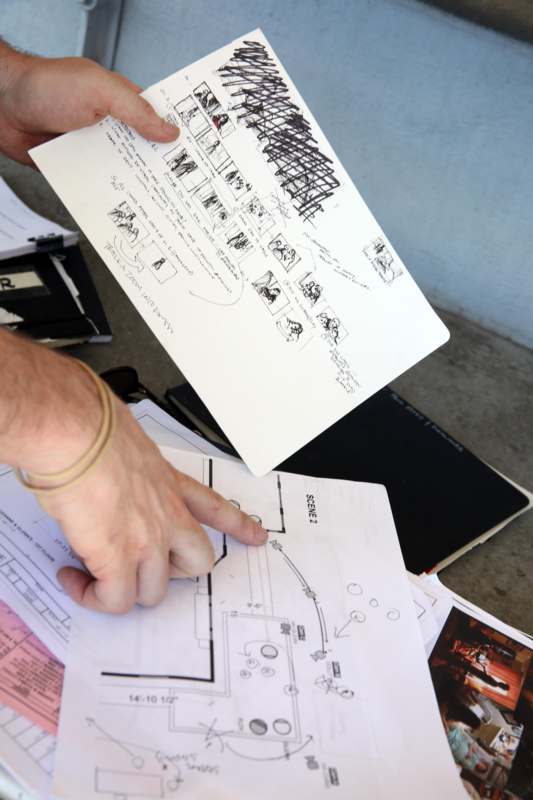
(filling those voids in the script): 'That was intentional. If you get an audience that anticipates something, then when that thing happens, you kind of just take your hands off the wheel, and it’s intense. In some ways, the uninflected quality of these scenes is unnerving to an audience. Because an audience is like, “You promised me something is going to happen, so was it the guy with the beet peeler in the corner, or is it the woman with the wine bottle?” Everything kind of takes on this menacing feeling to me.'
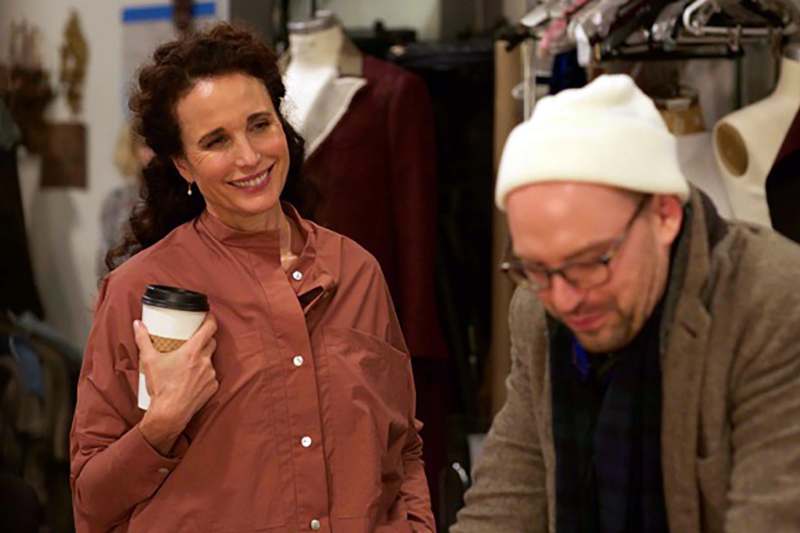
Actress Andie MacDowell (left), on set wtih Harbaugh, thrived in such improvisations. 'You have to be willing to do that to get the good stuff. I never wanted them to find jokes or to get above what was happening. I just wanted them to respond to the situation honestly. Improvisation is like acting without a net, and it can be awful. The actors who are really good – Chris and Andie were like this – know that you embrace that it’s going to be bad a lot of the time, but then you’re going to get that one take, that fifteen seconds, that’s incredible.'
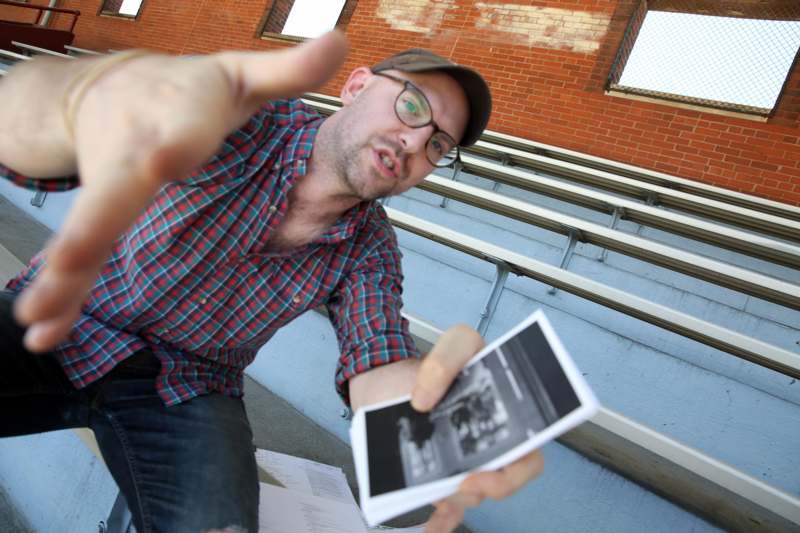
(on the process of shooting): 'Up until you shoot, you have this machine, and you take the lens cap off, and whatever’s in front of this is going to be the stuff of the movie. Everything is geared to whatever you’re putting in front of this machine. From the beginning of the process, you’re preparing for what happens when you make that machine take pictures. When you’re on set, it’s just hyper-intense. All that work has now been funneled into this area (in front of the camera).'
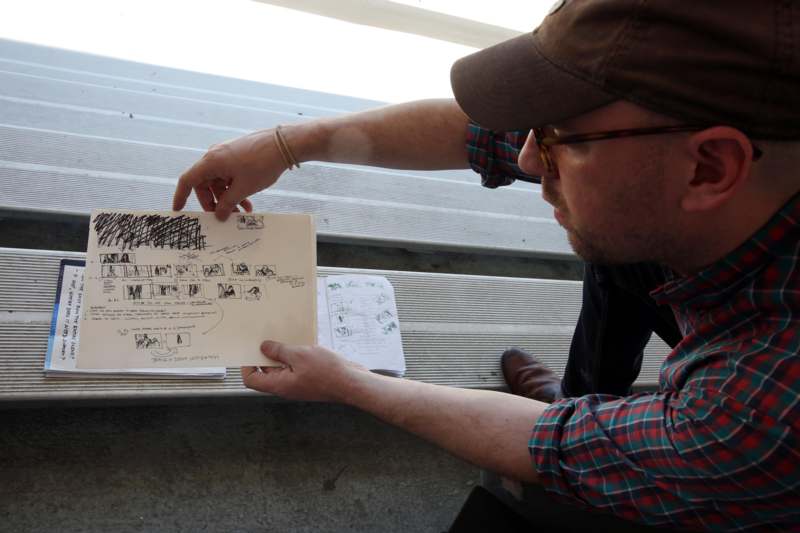
(was there a learning curve?): 'The regret I have from the shoot is that I was learning, I think I was scared, so I relied on my preparation more than I wanted to. I hadn’t handled that kind of delicate balance before and I think in the future it’ll be easier to figure out how to get what you prepared for, but also go looking for what’s new.'
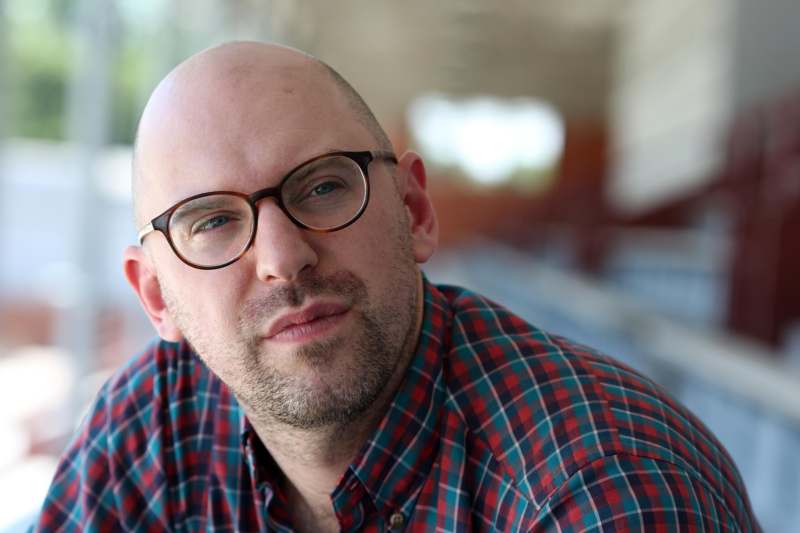
(how do you know when you have something good?): 'I just feel like the tuning fork that’s in my gut has been confirmed. When we sit down to make something, there is something that tells us whether or not we’re close to what the thing is in our head. I lean really heavily on references. I made this 86-page image bible -- from beginning to end of the movie in chronological order -- that included things like paintings and color palettes, and film stills. I tried to create a relationship to the material before we were on set.'
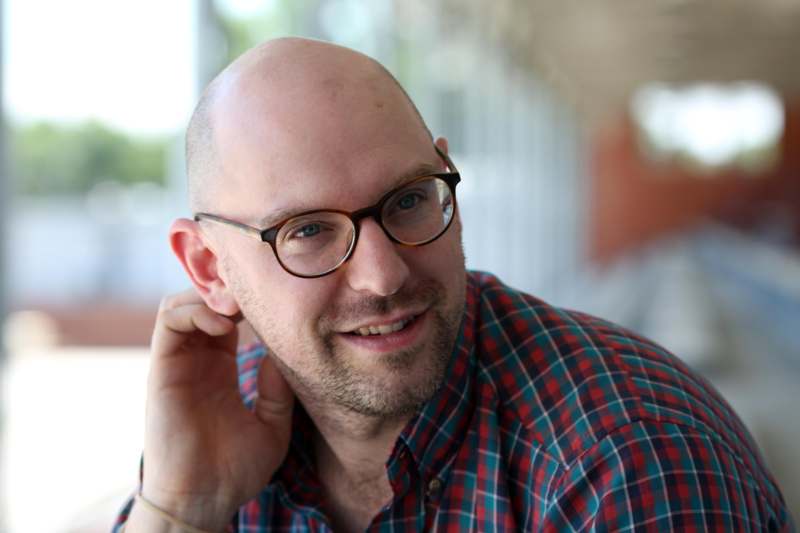
(his approach to filmmaking): 'The movies I want to keep making are like pressing the pause button on my life and asking, 'What does my life feel like to me right now?' The art I love the most feels like that to me. The artists I admire most are people who were able to just leave an emotional record of what being human on the Earth was. That’s admirable. I would spend my whole life doing that.'
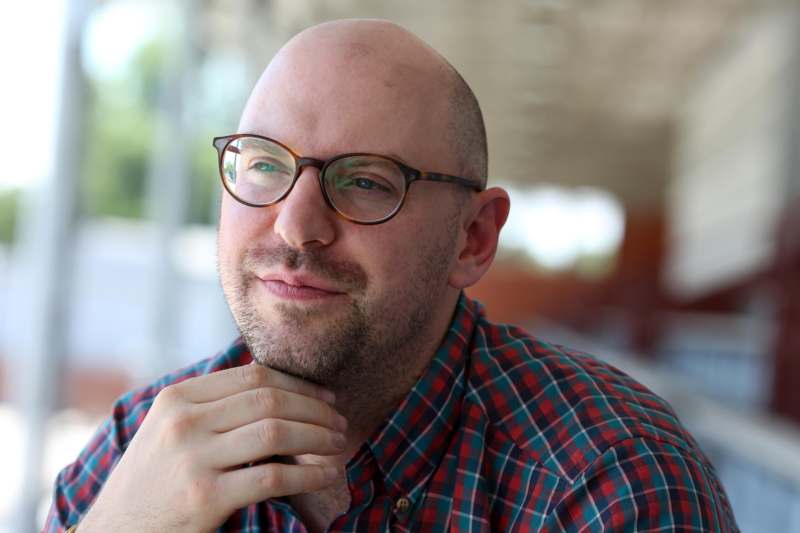
(on the social aspect of making movies): The act of making a movie can be so consuming and intricate that you can kind of make your life about it. There’s something that’s social about it, too. I made this joke to (co-writer) Eric Mendelsohn once, 'I think I make movies so that I’ll have friends. I’ll be around people who share my interests.' I really enjoy that part of it. '
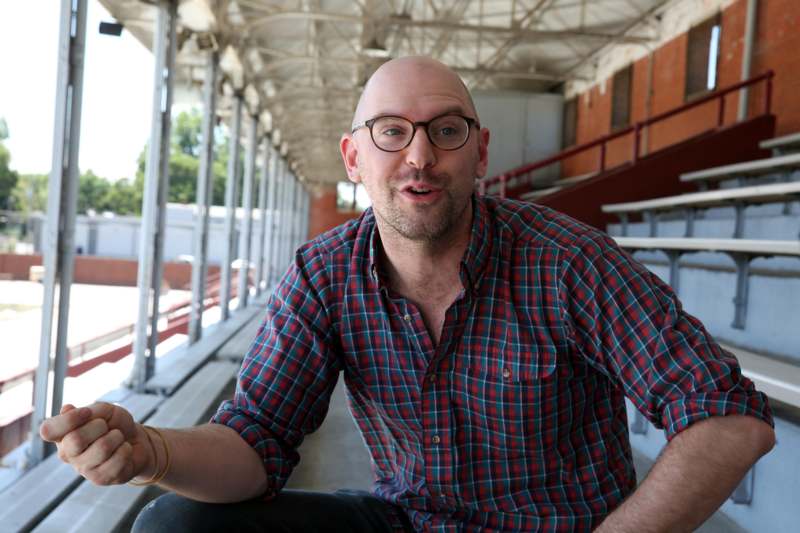
(on finding common interests): 'I don’t think that’s an original way to structure one’s life. I think people do that constantly. You find what you are interested in and how to make sure that that feels good and meaningful. So, you try and find a community that also thinks like that and you push each other to do it.'
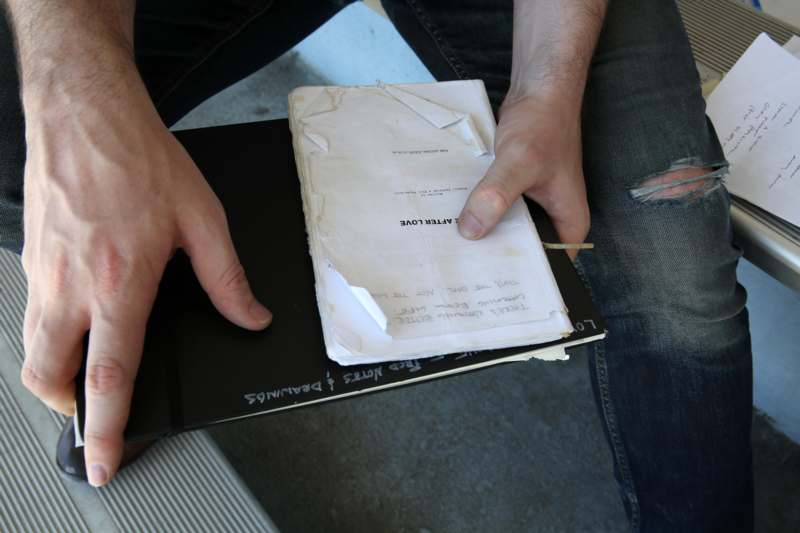
'They took a chance on a first-timer. They really had to trust that I knew what the hell I was doing. And I didn’t, you know? I had a certain amount of conviction about what our intentions were, but it’s much harder to play some of those games when you’re the new guy. The experience of being a first-time filmmaker is an experience of being on set where literally everyone has more experience than you. The gaffer has made 30 movies, the producers, everyone on set has made movies before. You’re the only one who is making their first.'
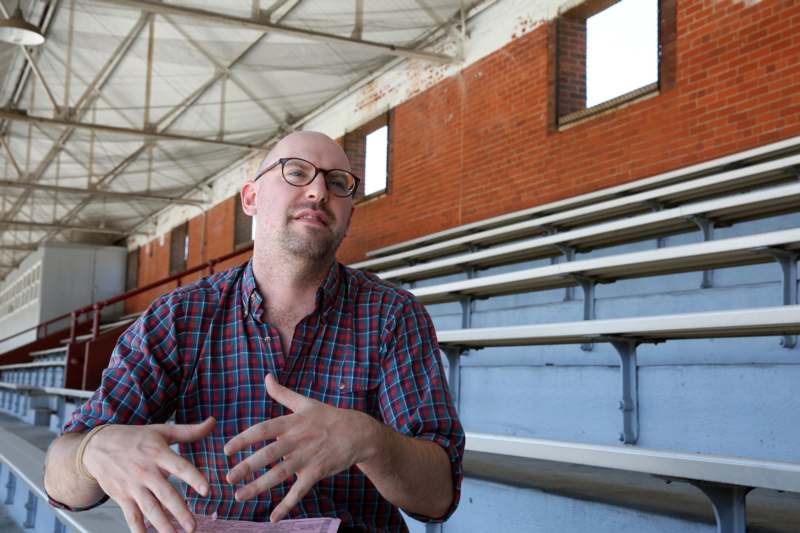
(are your feelings about a film affected by reviews or public opinion?): 'You don’t want to allow what your relationship is to the material to be distorted by the opinions of other people. However, so much of what we do is for the audience, it’s for other people, it’s fundamentally about giving it to a group of people and having them close that loop and bring themselves to it. And so, of course, you’re interested in what the external idea is of your movie.'

